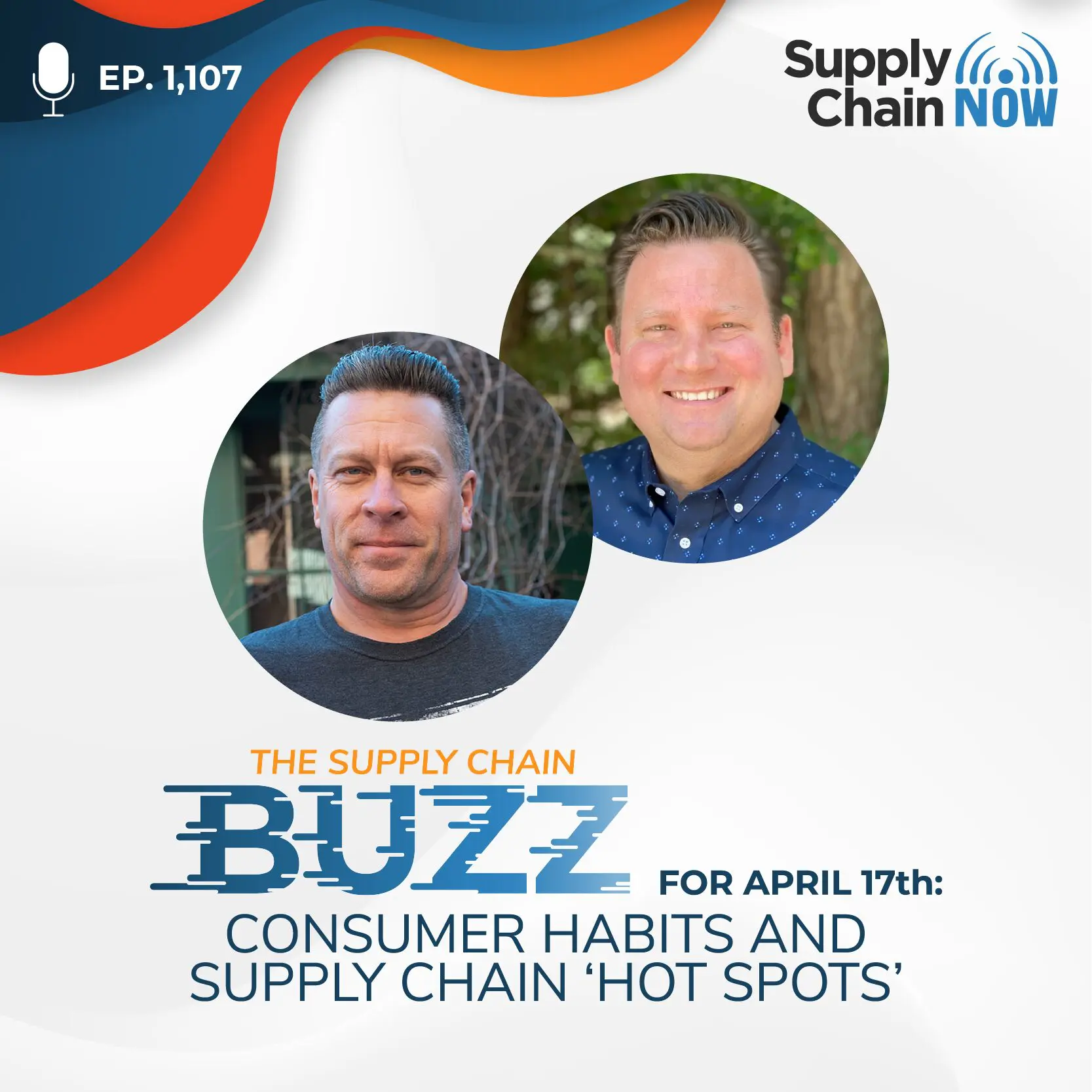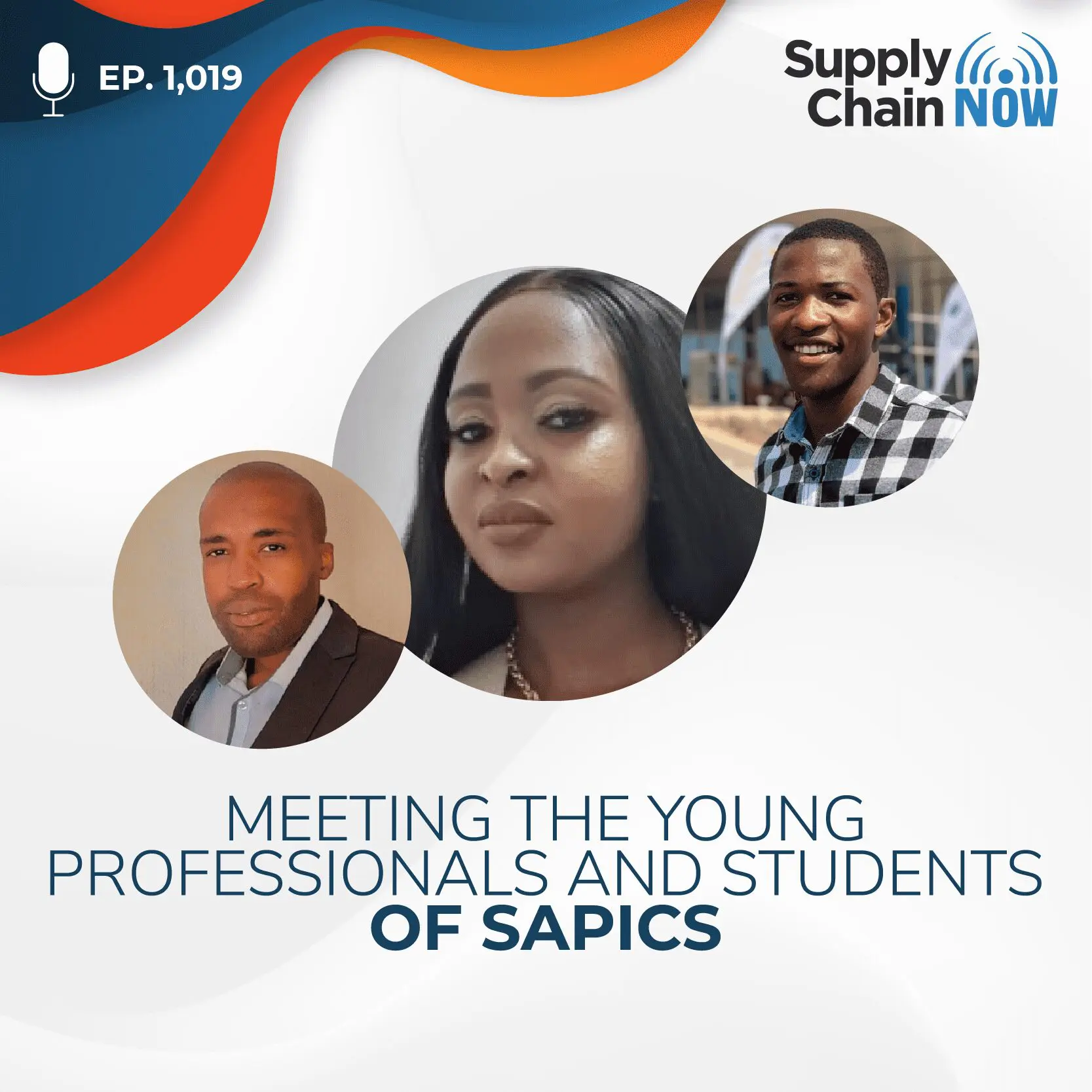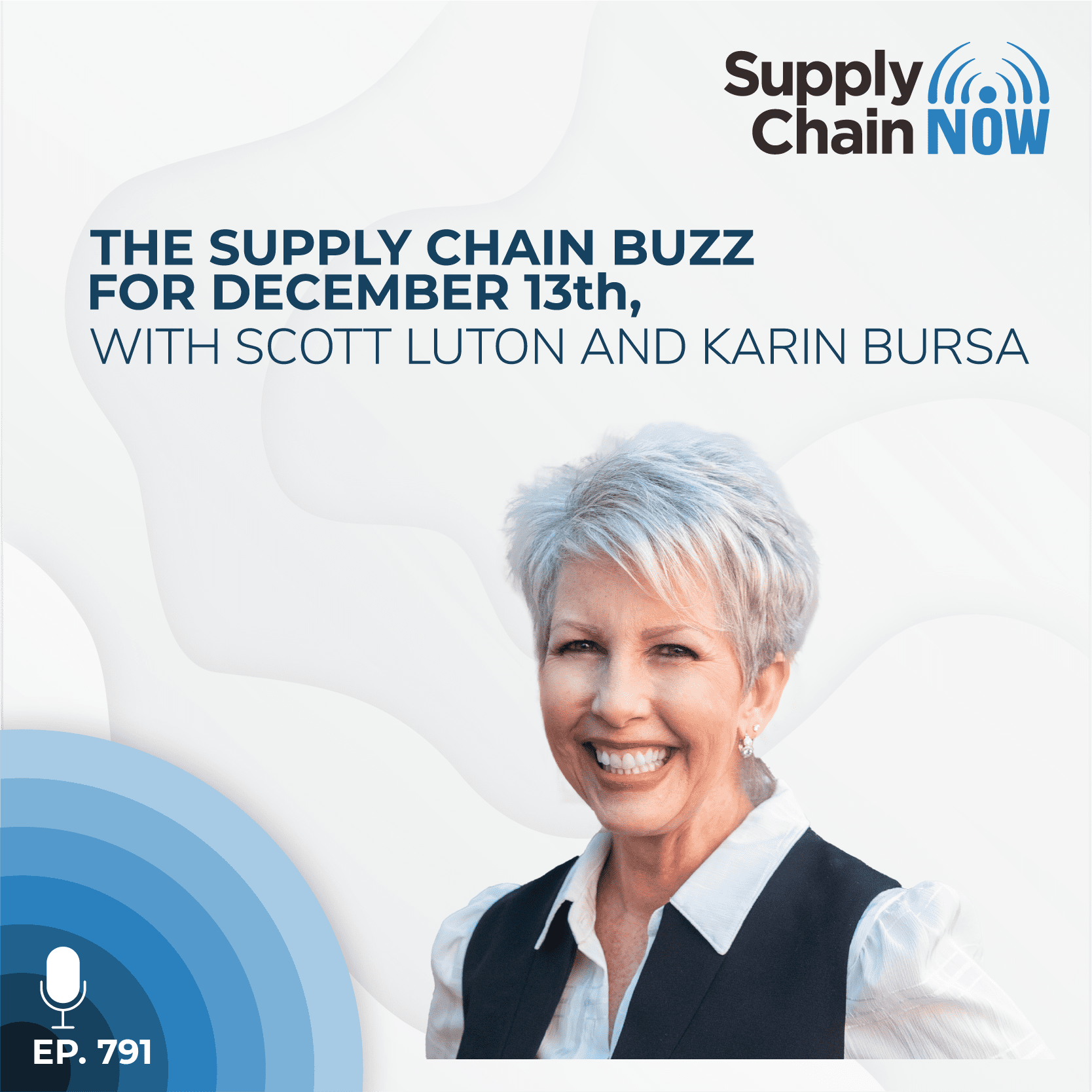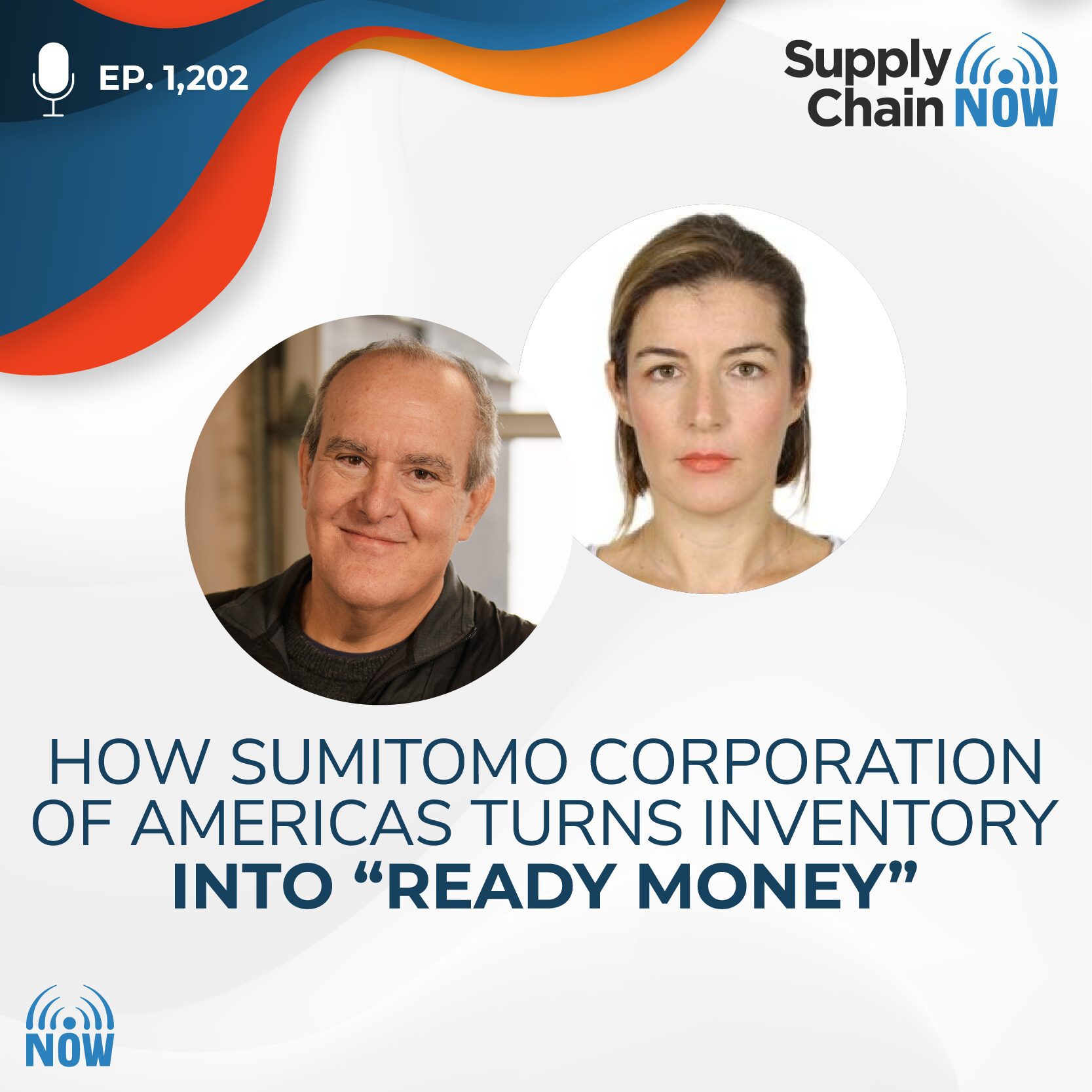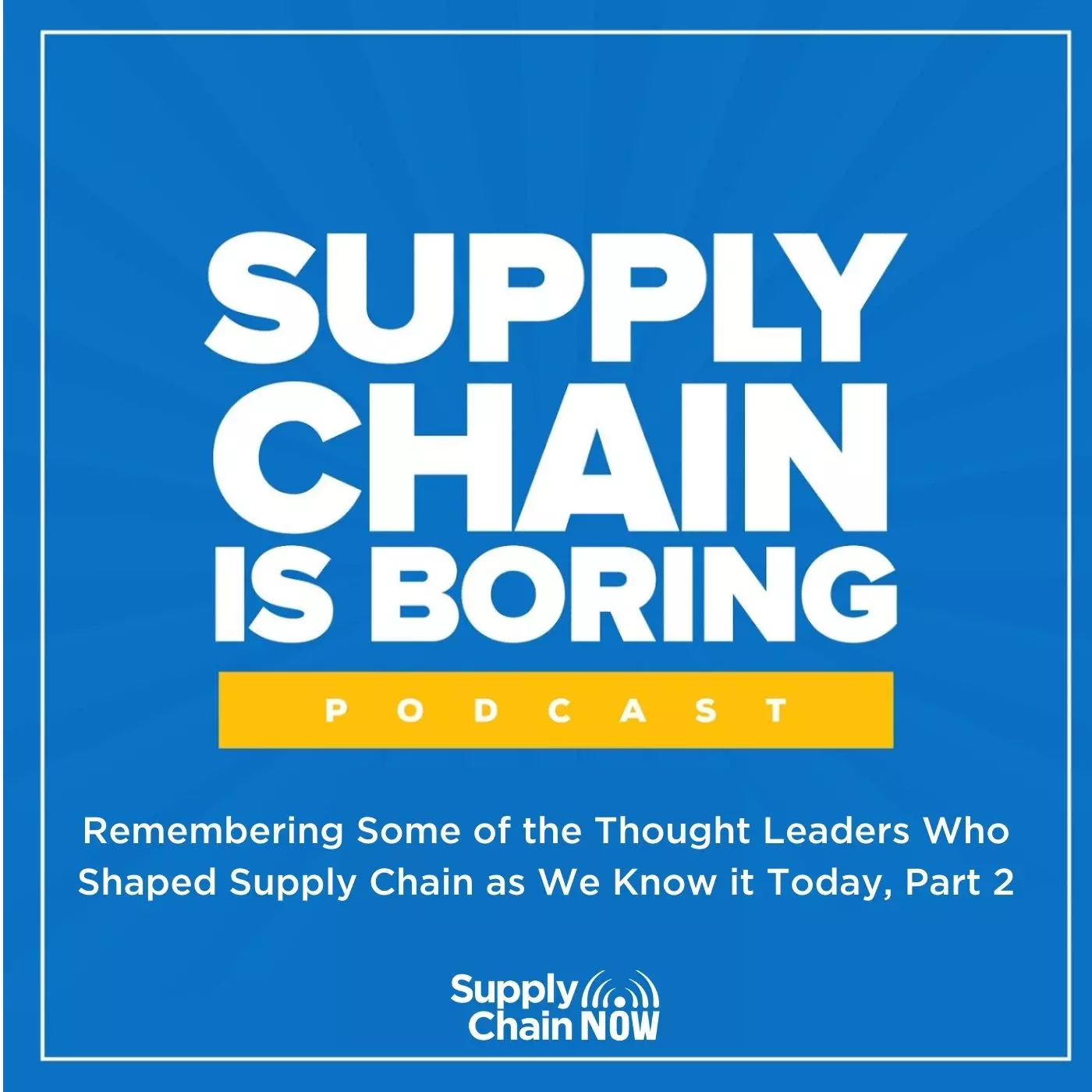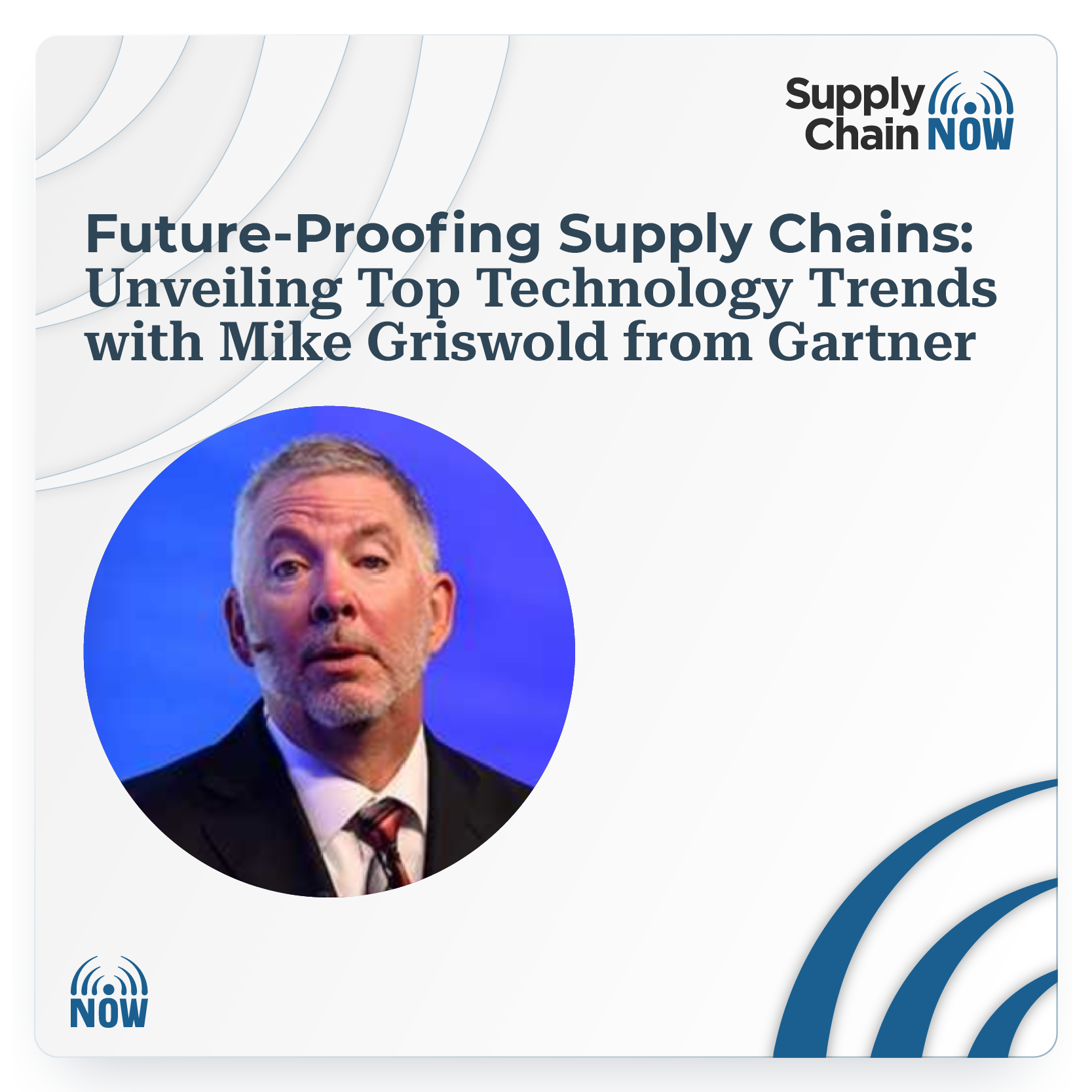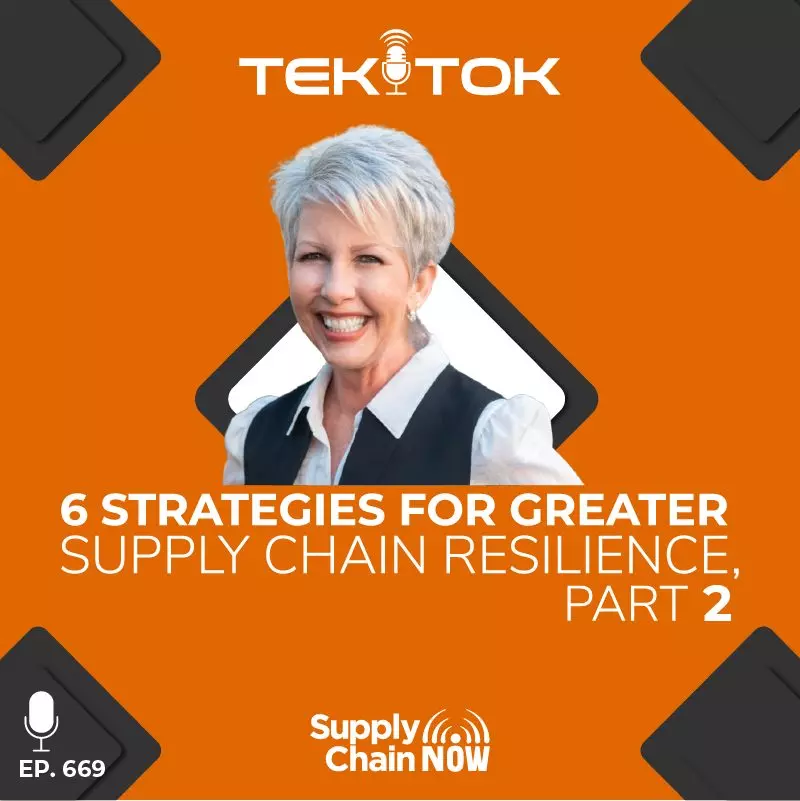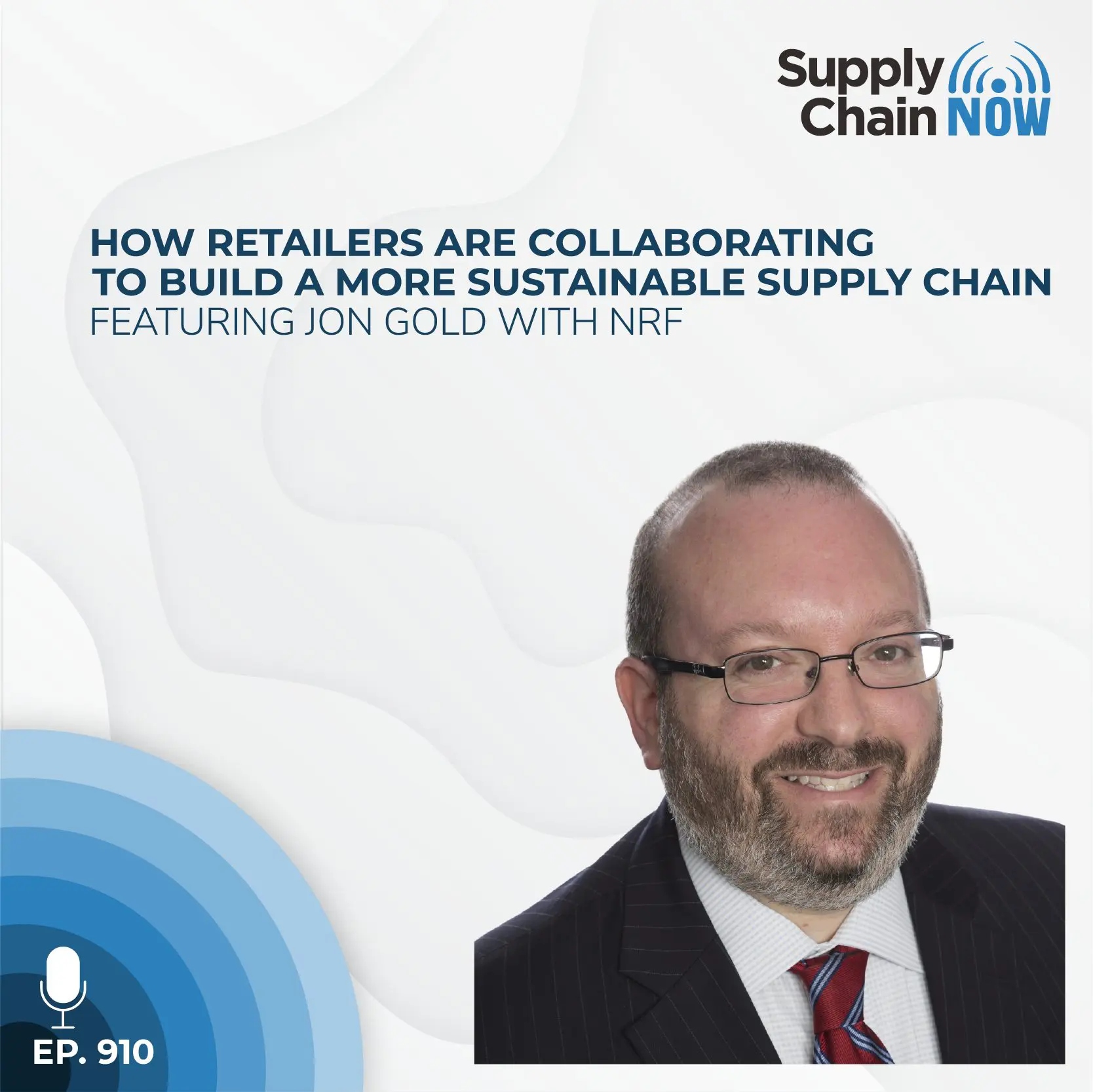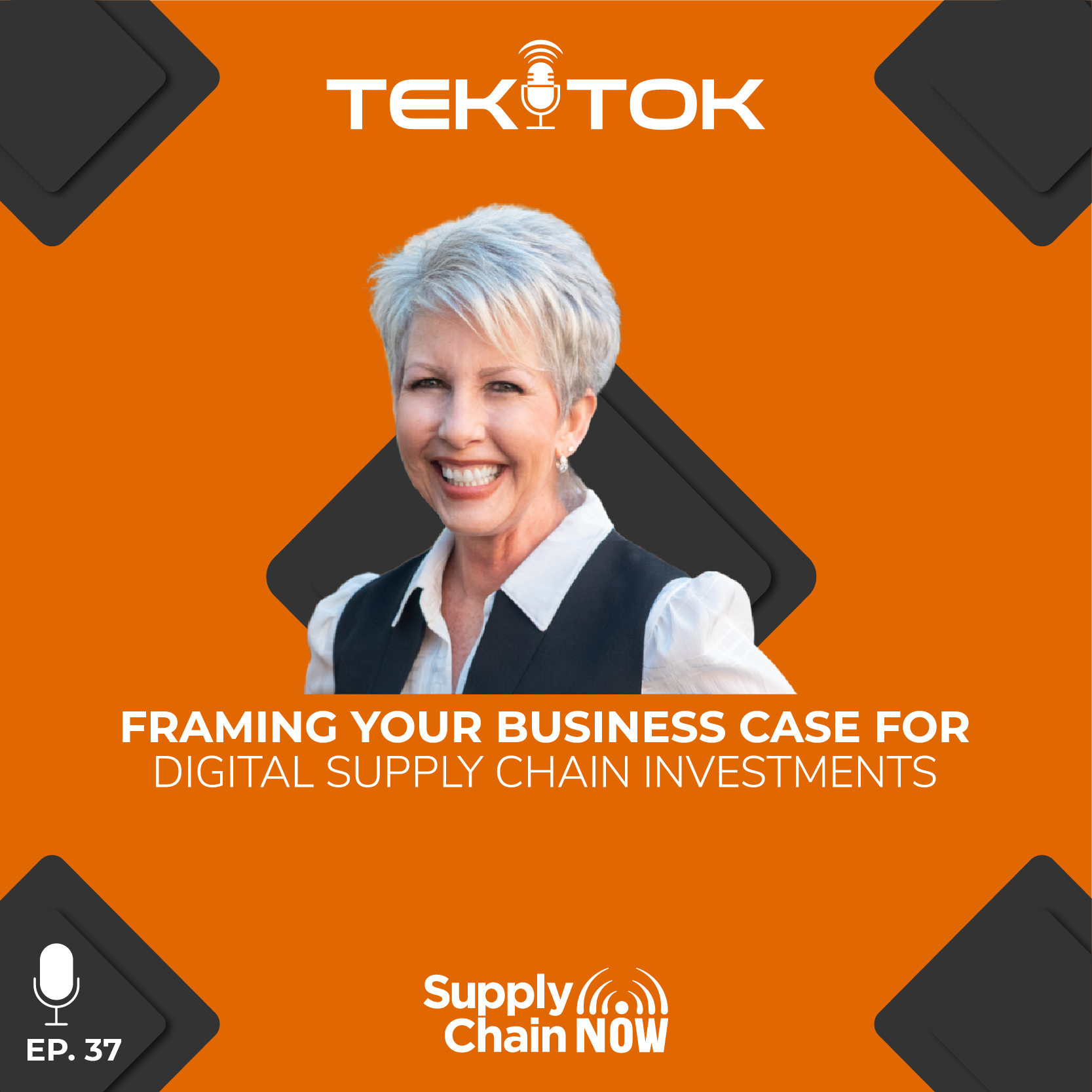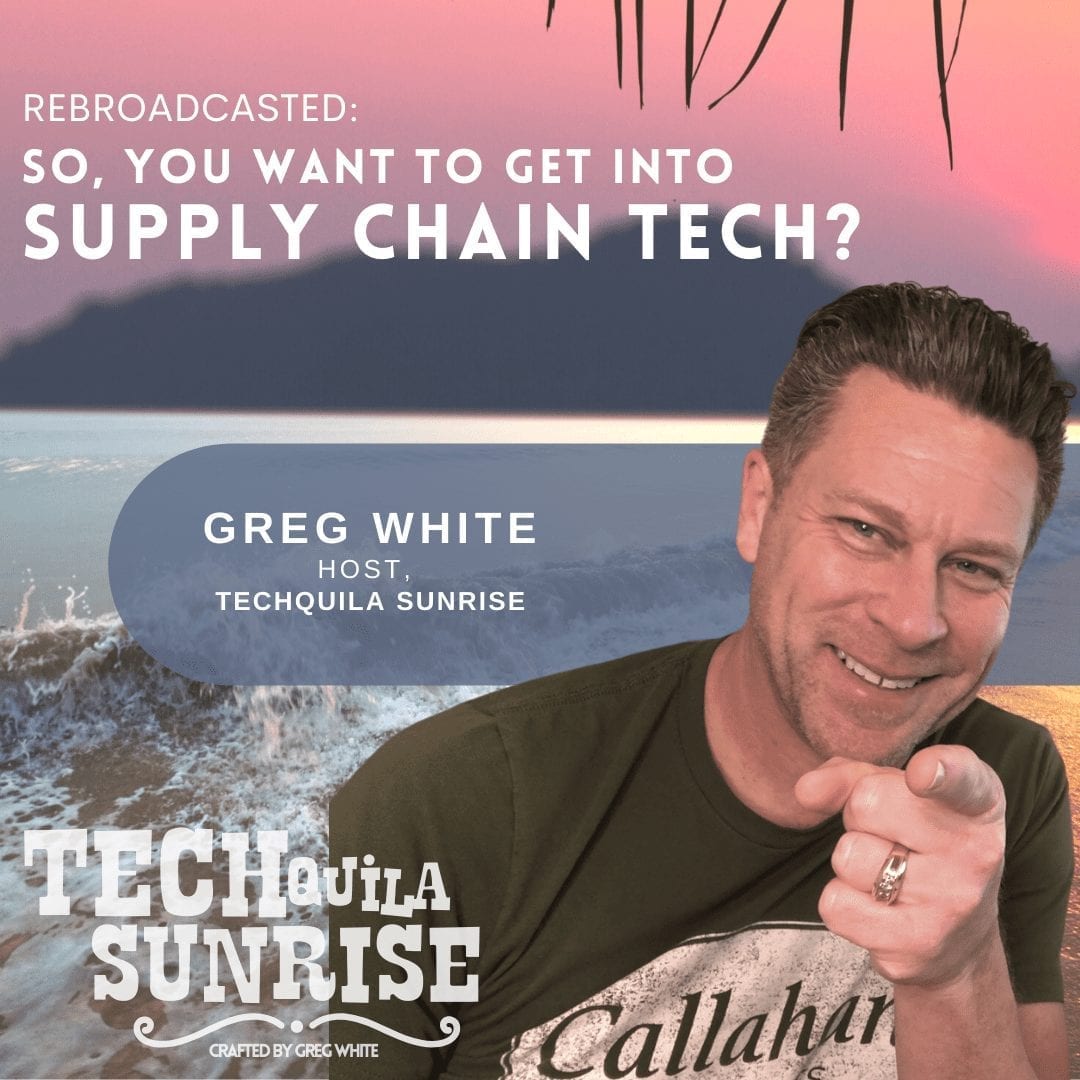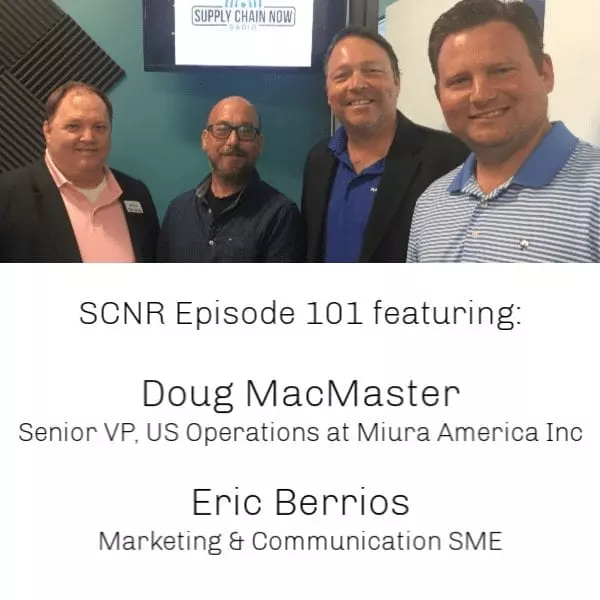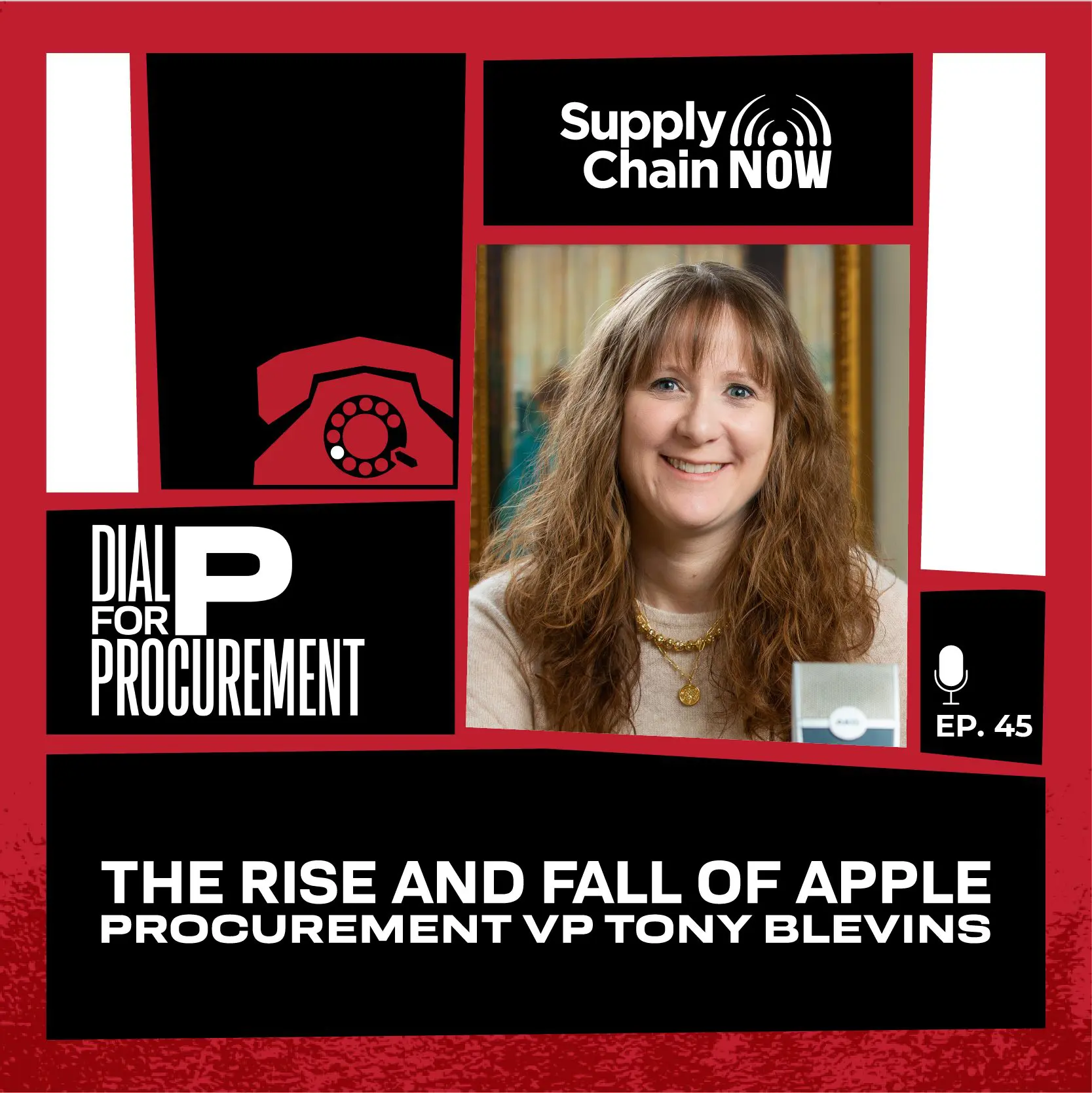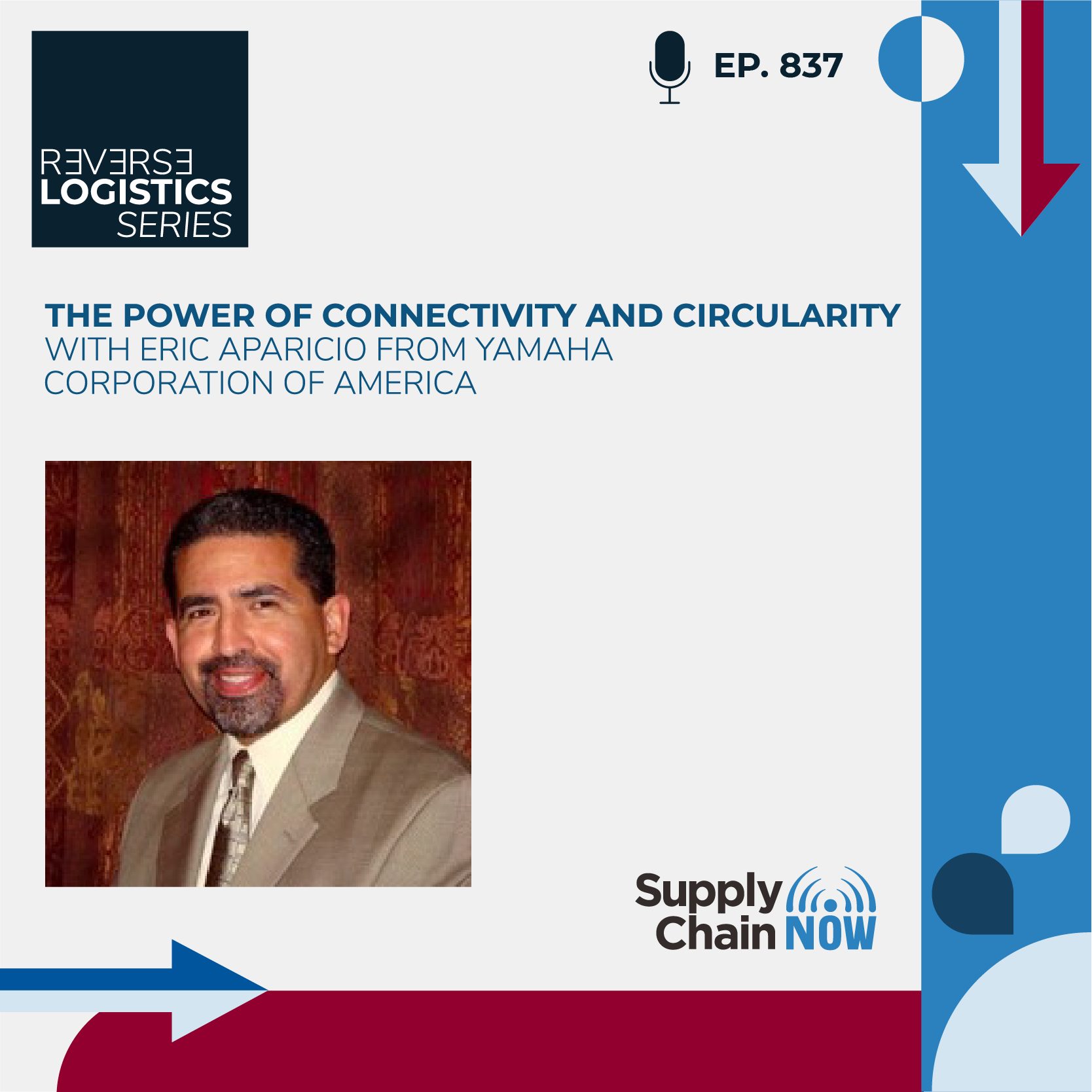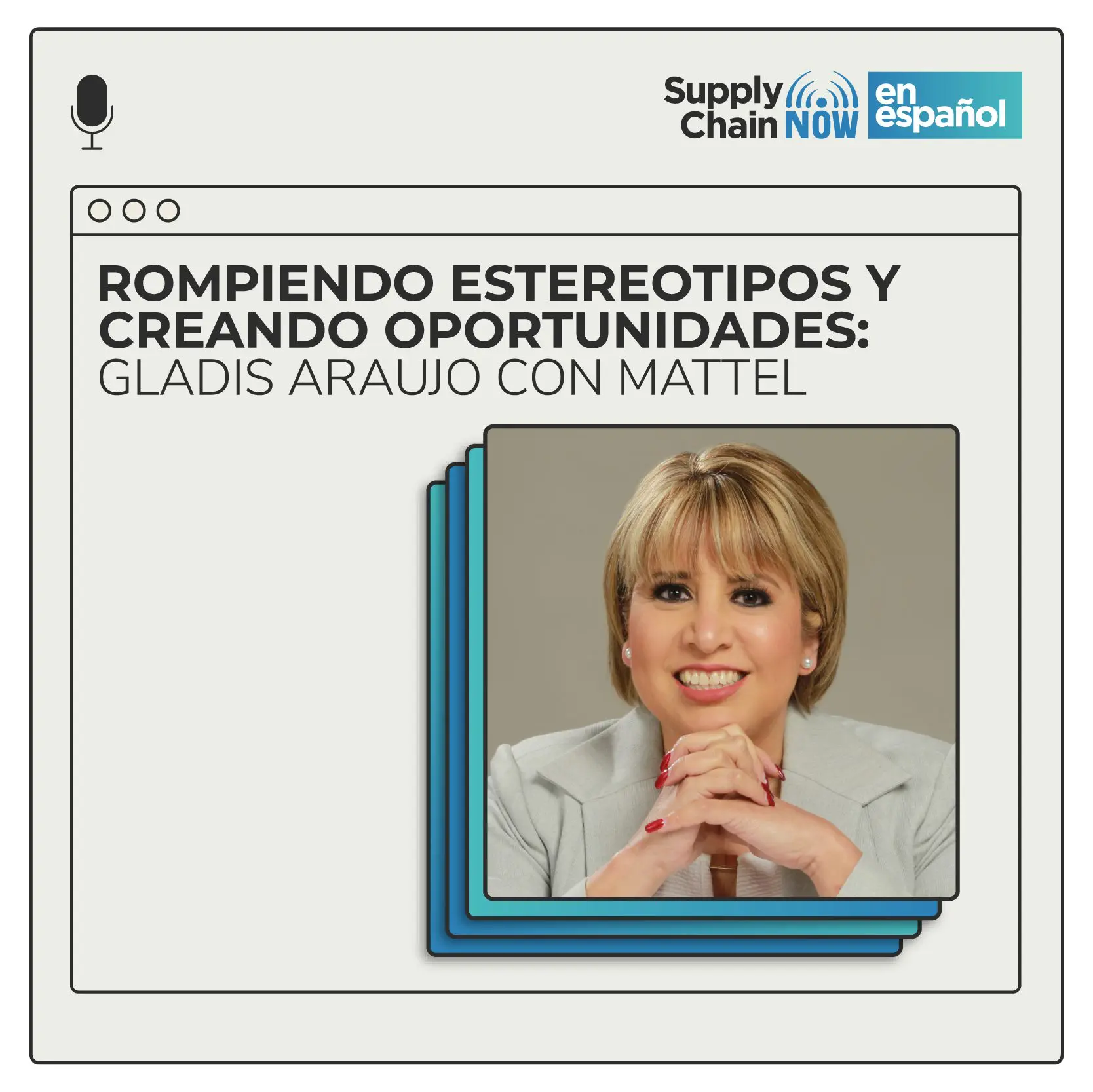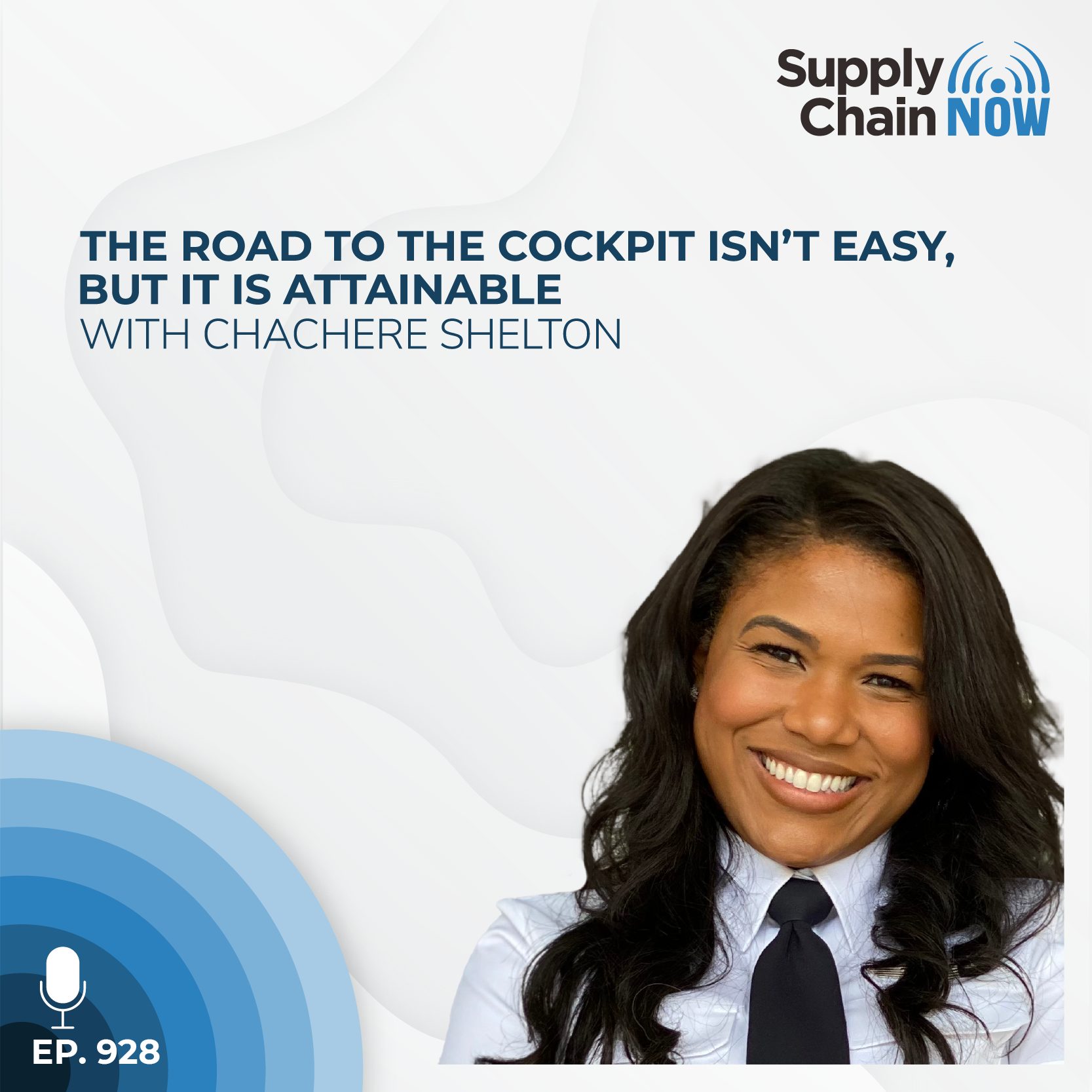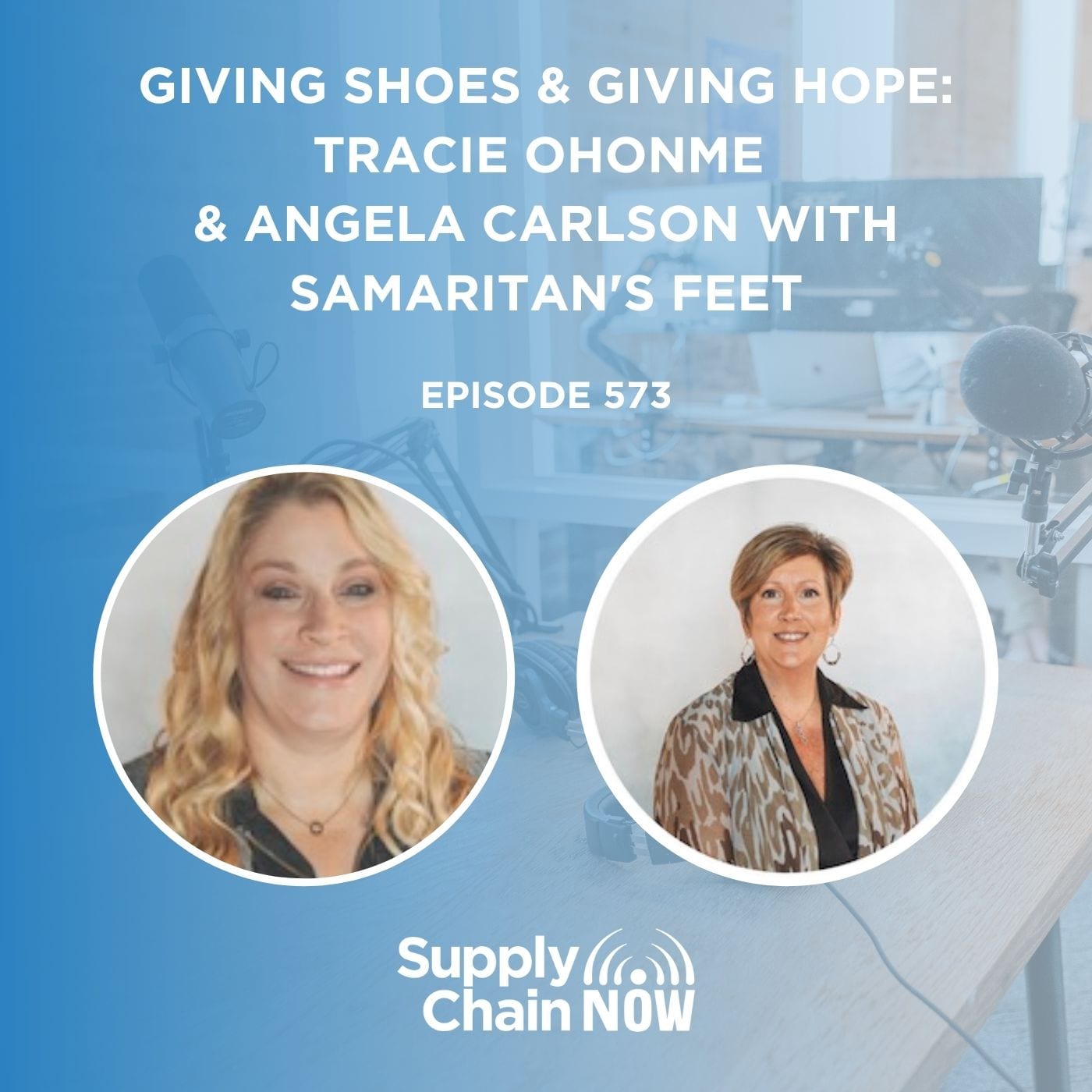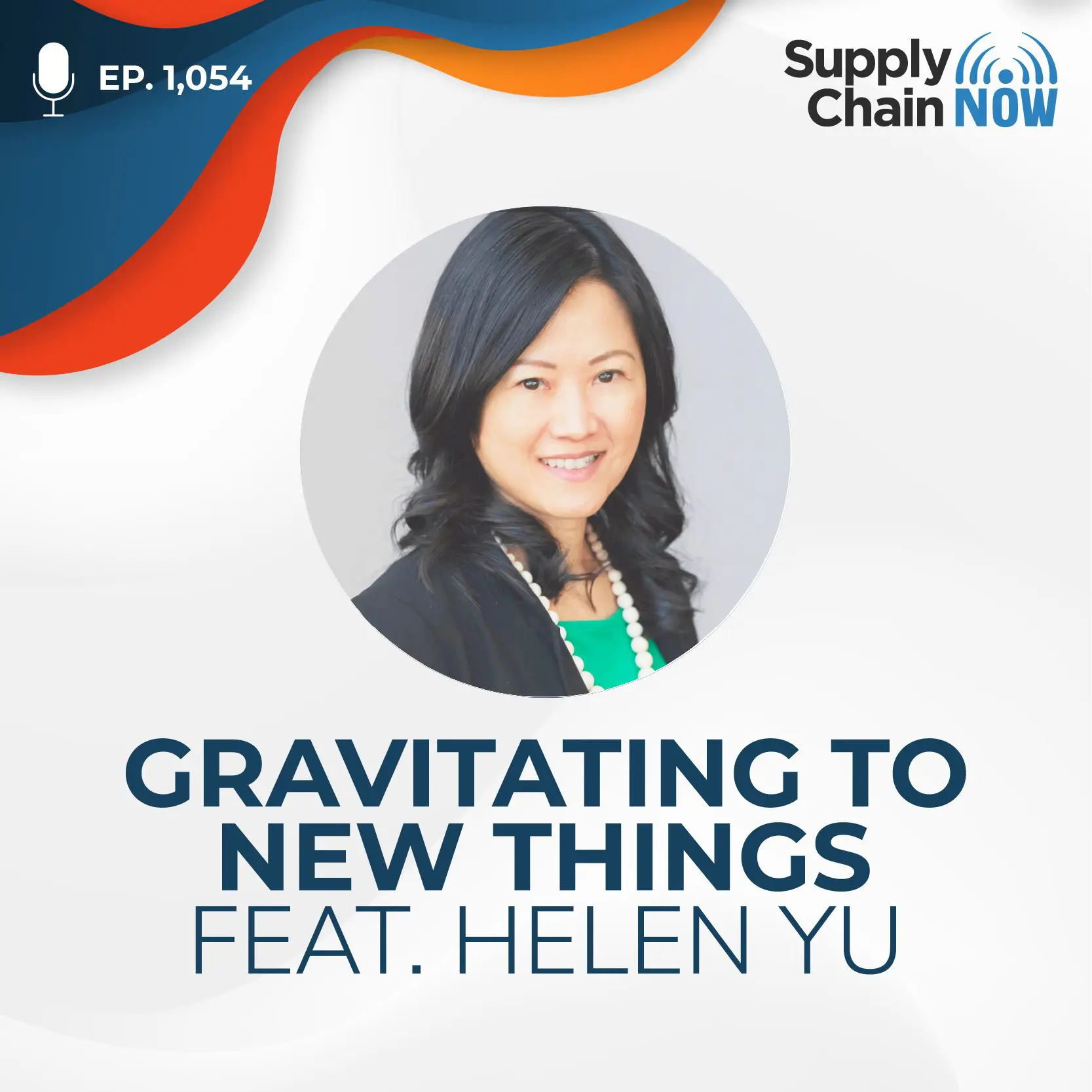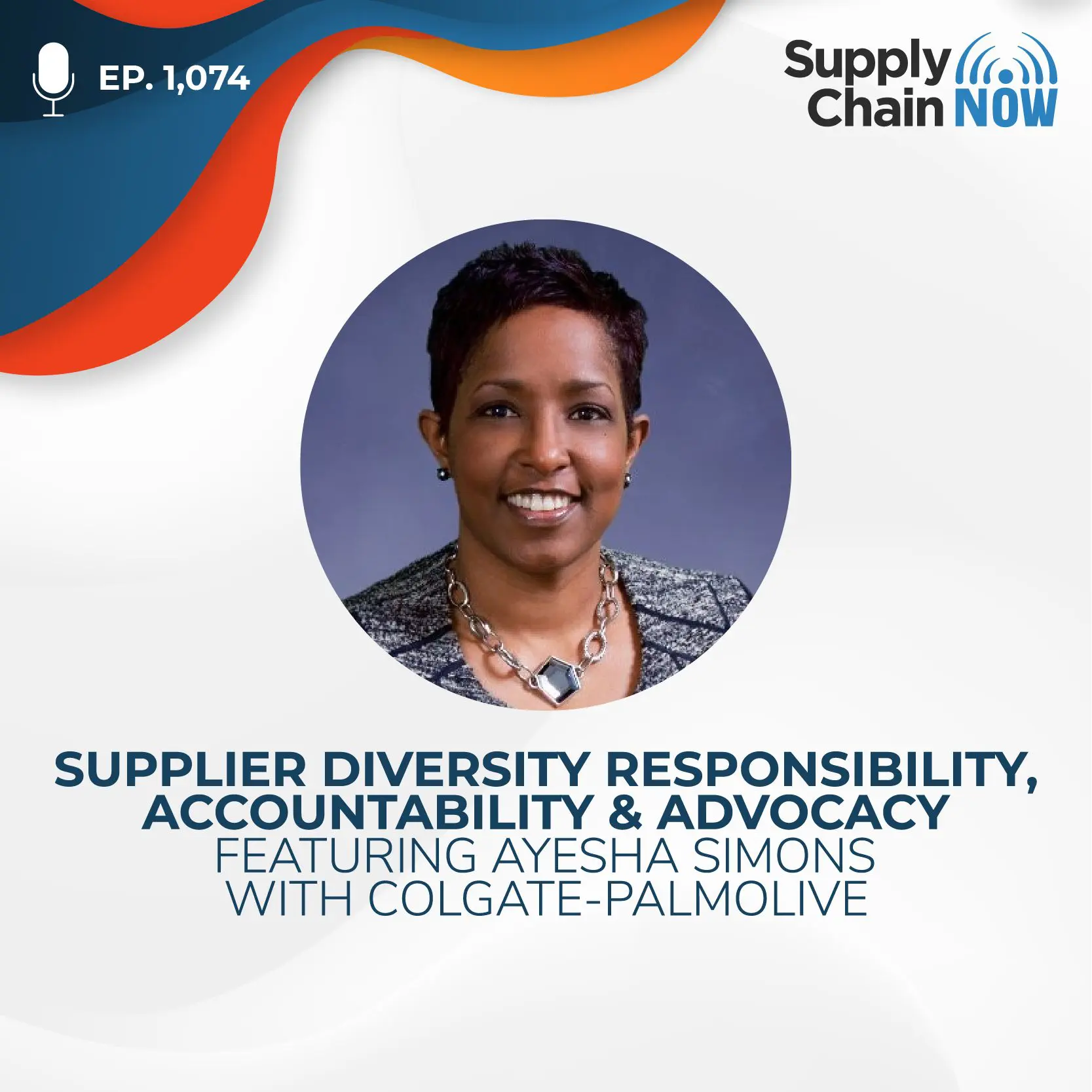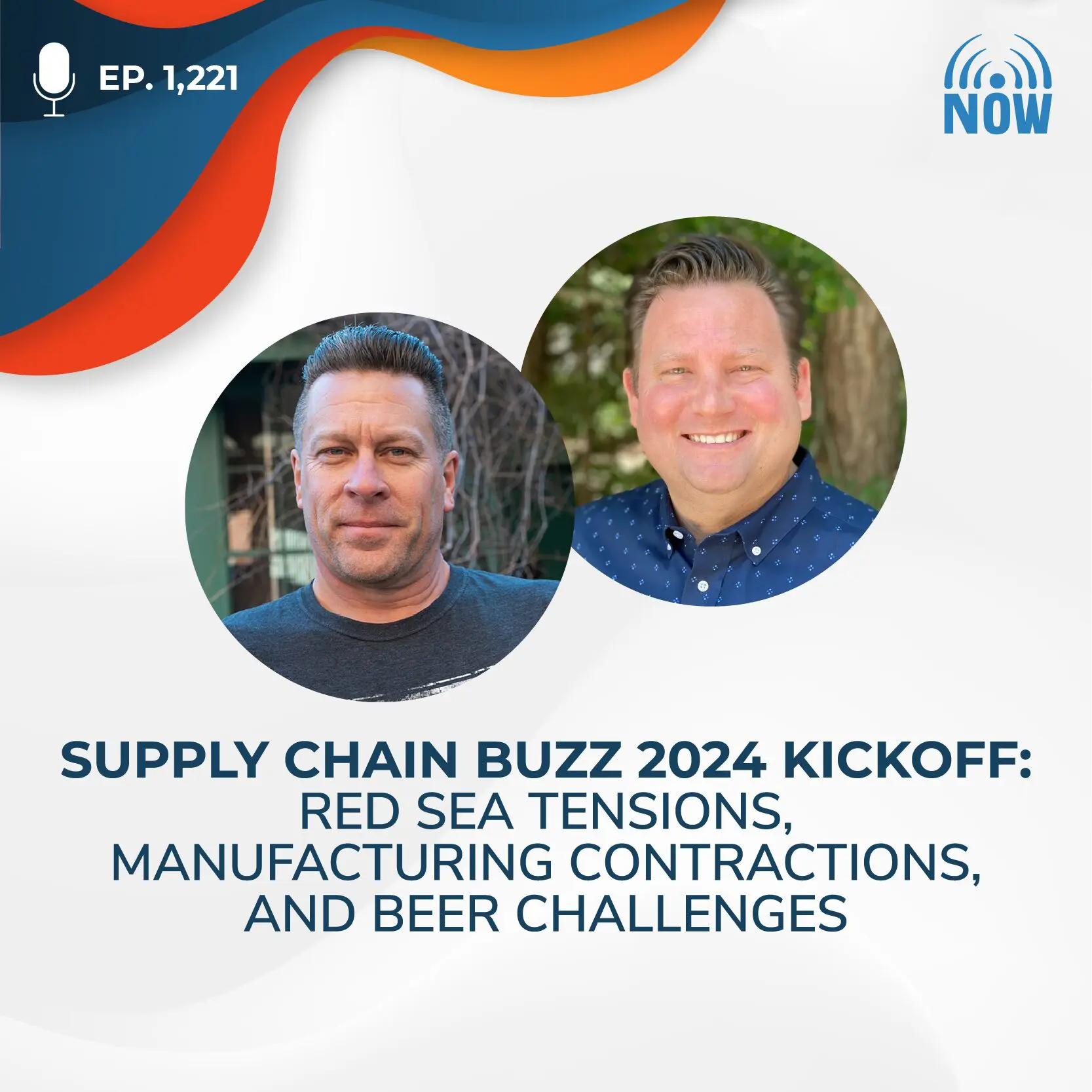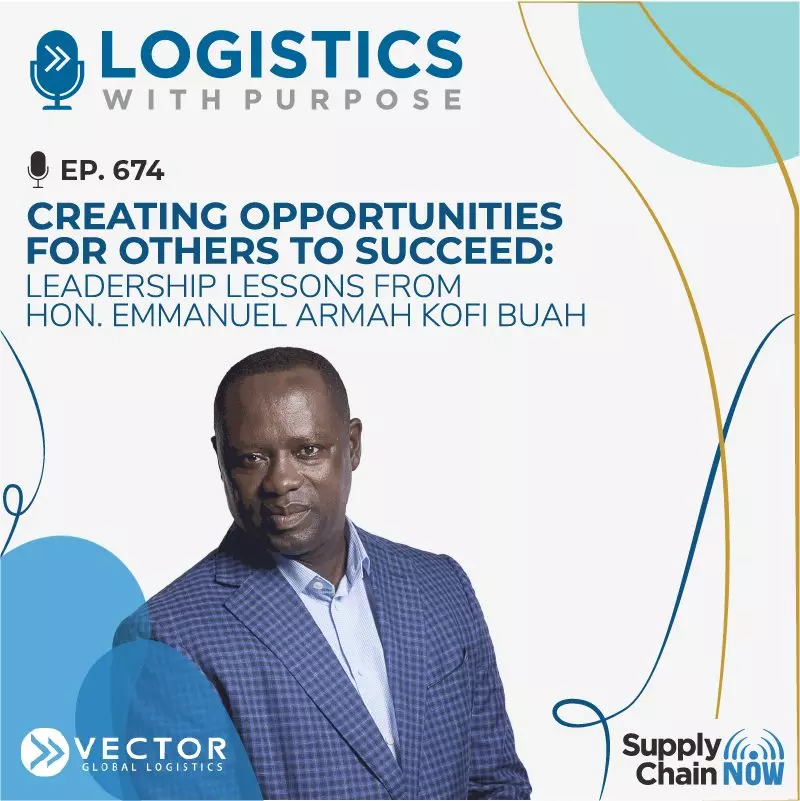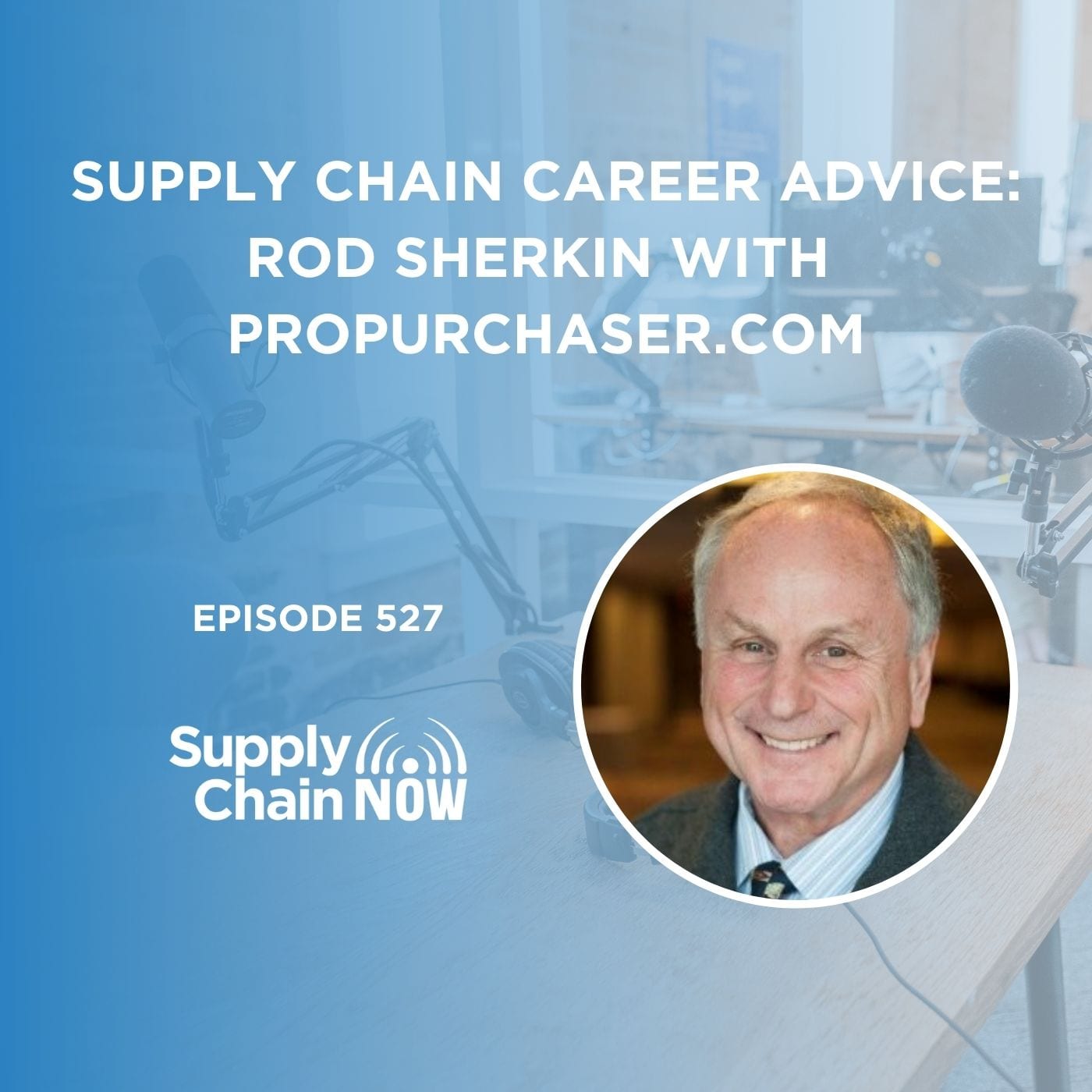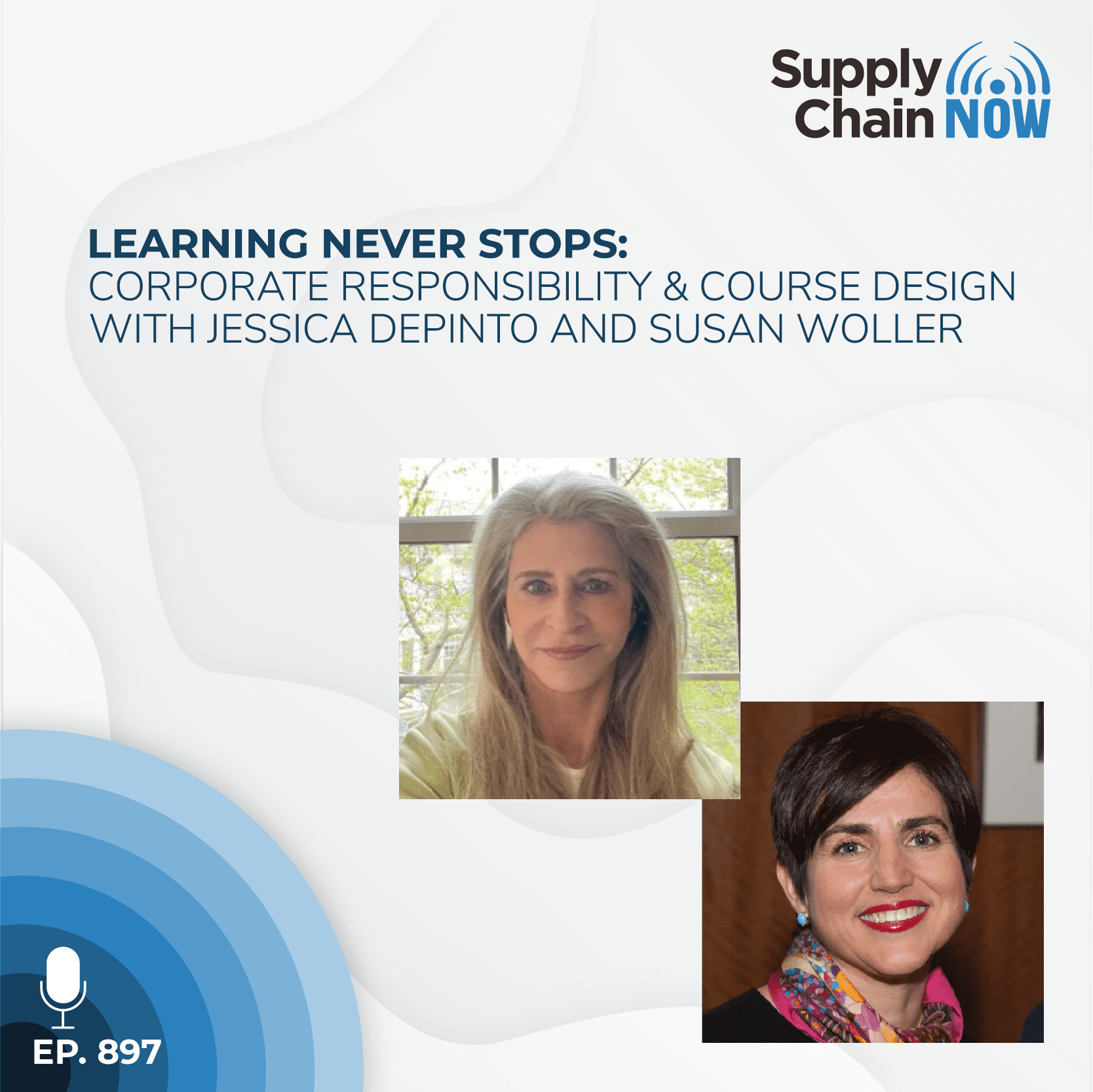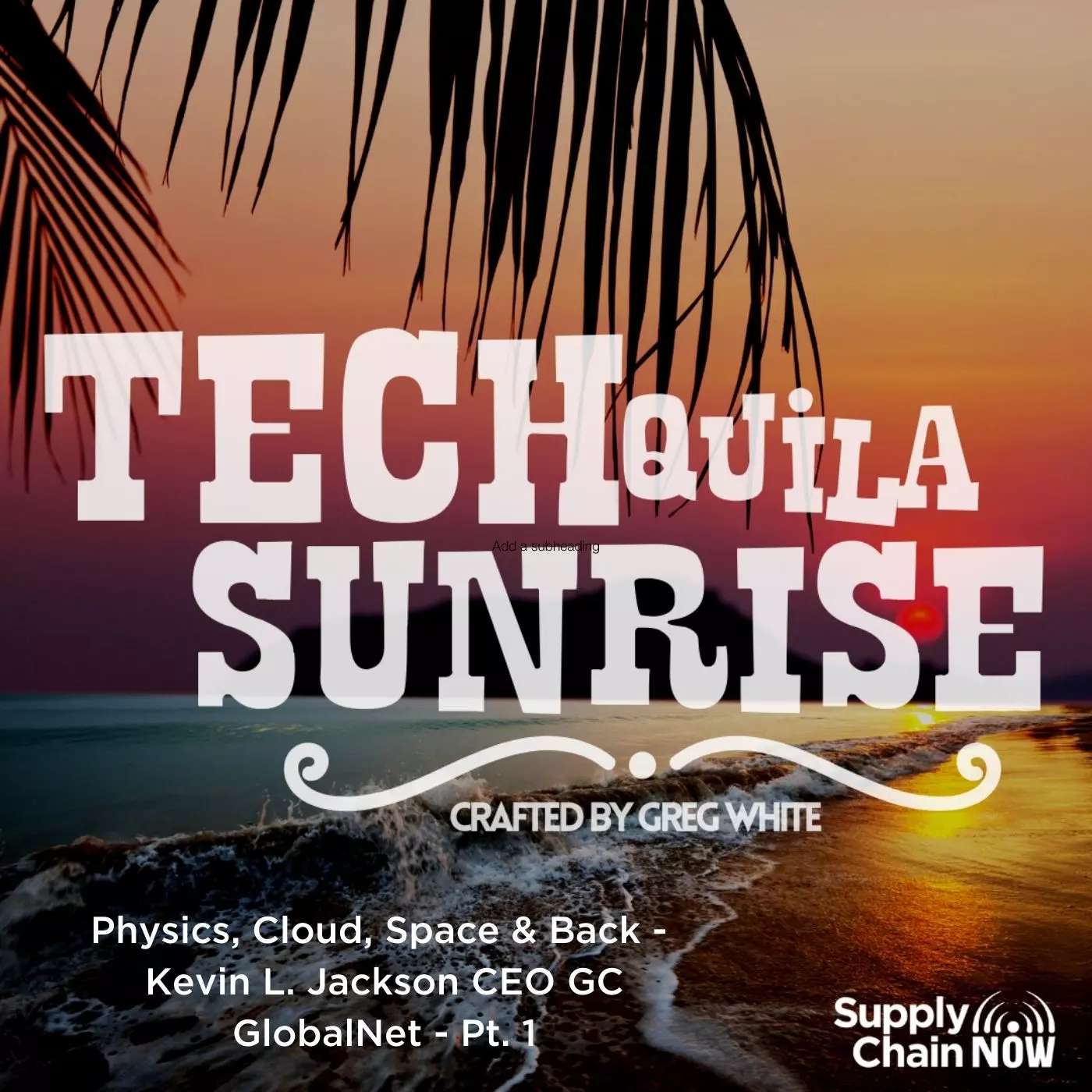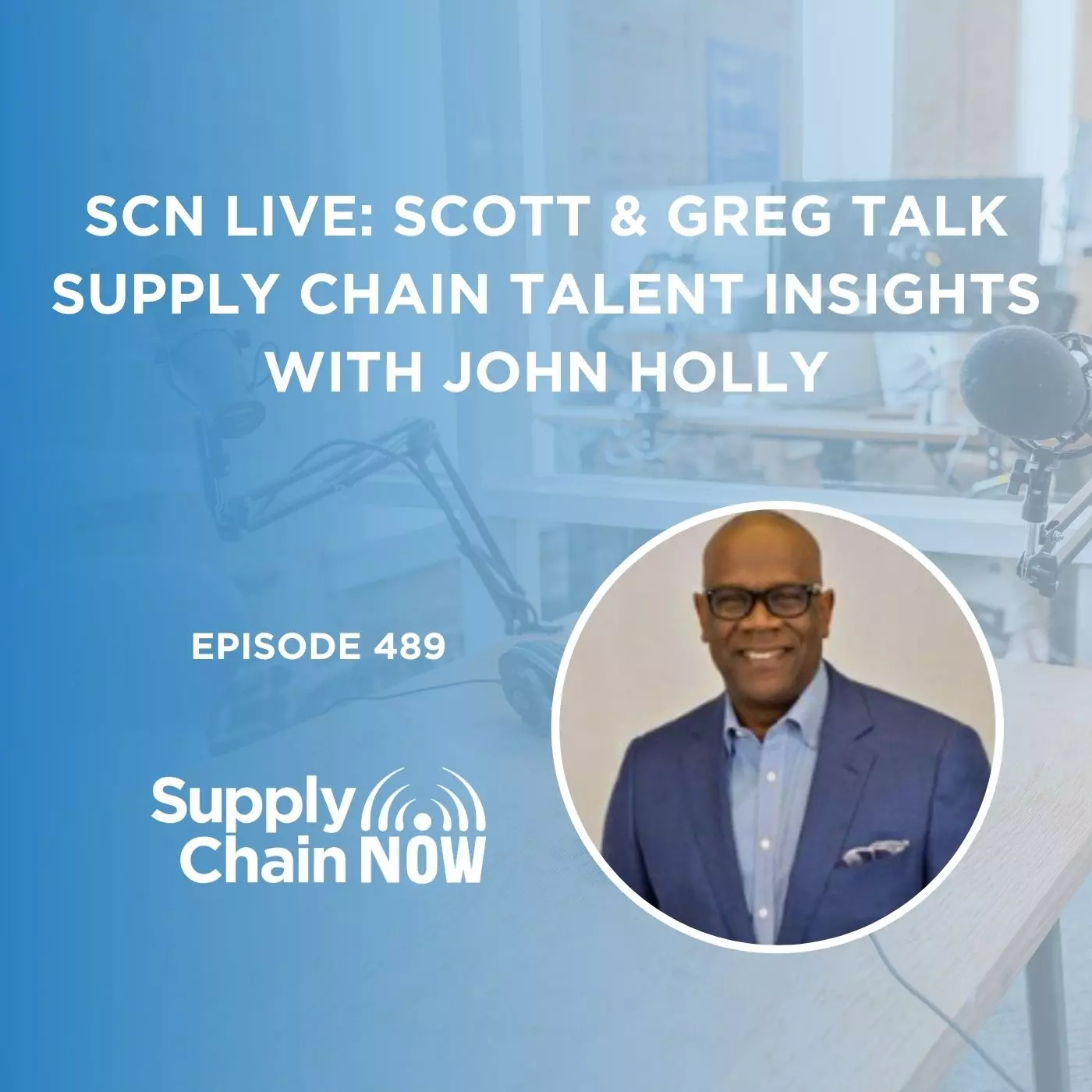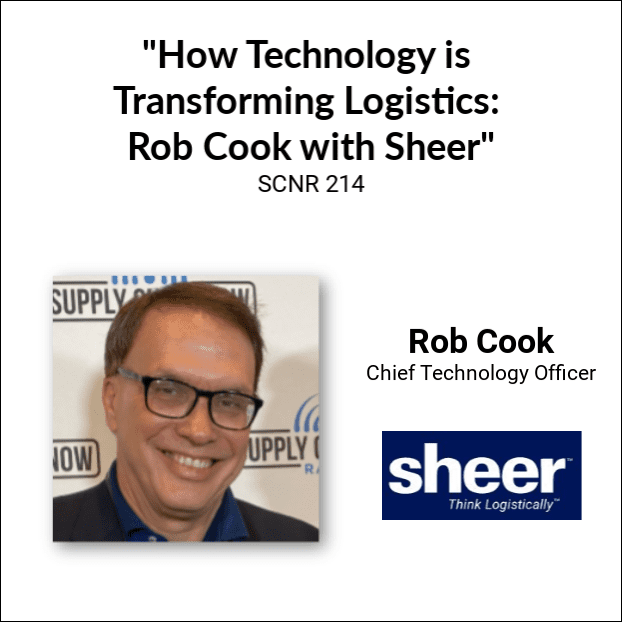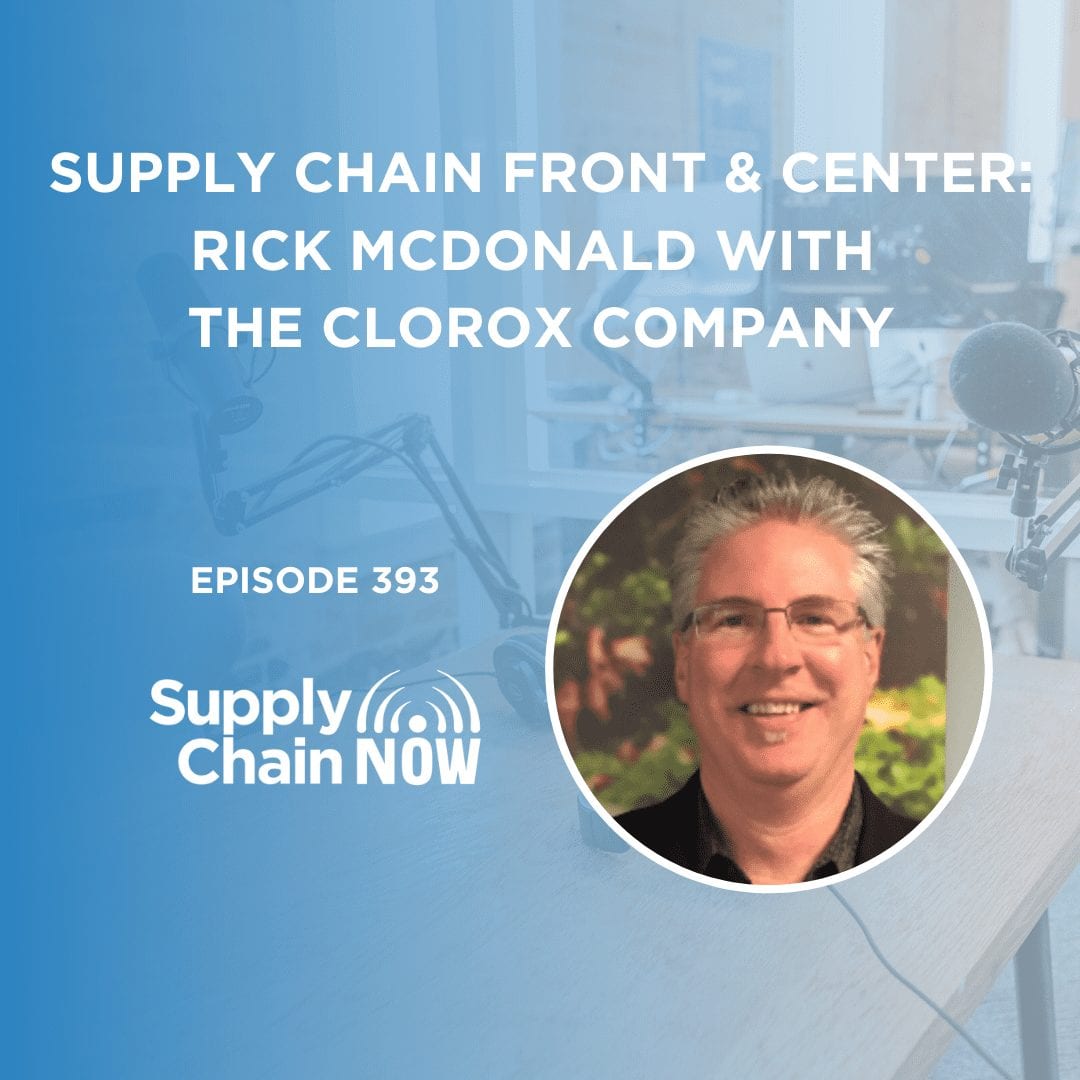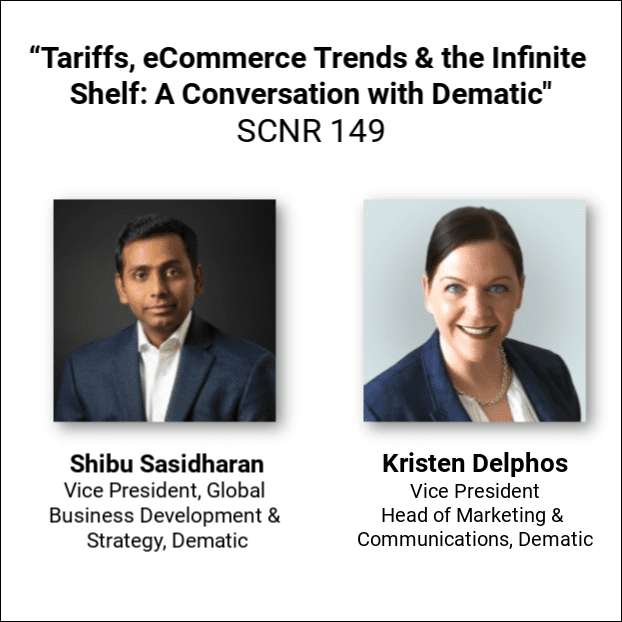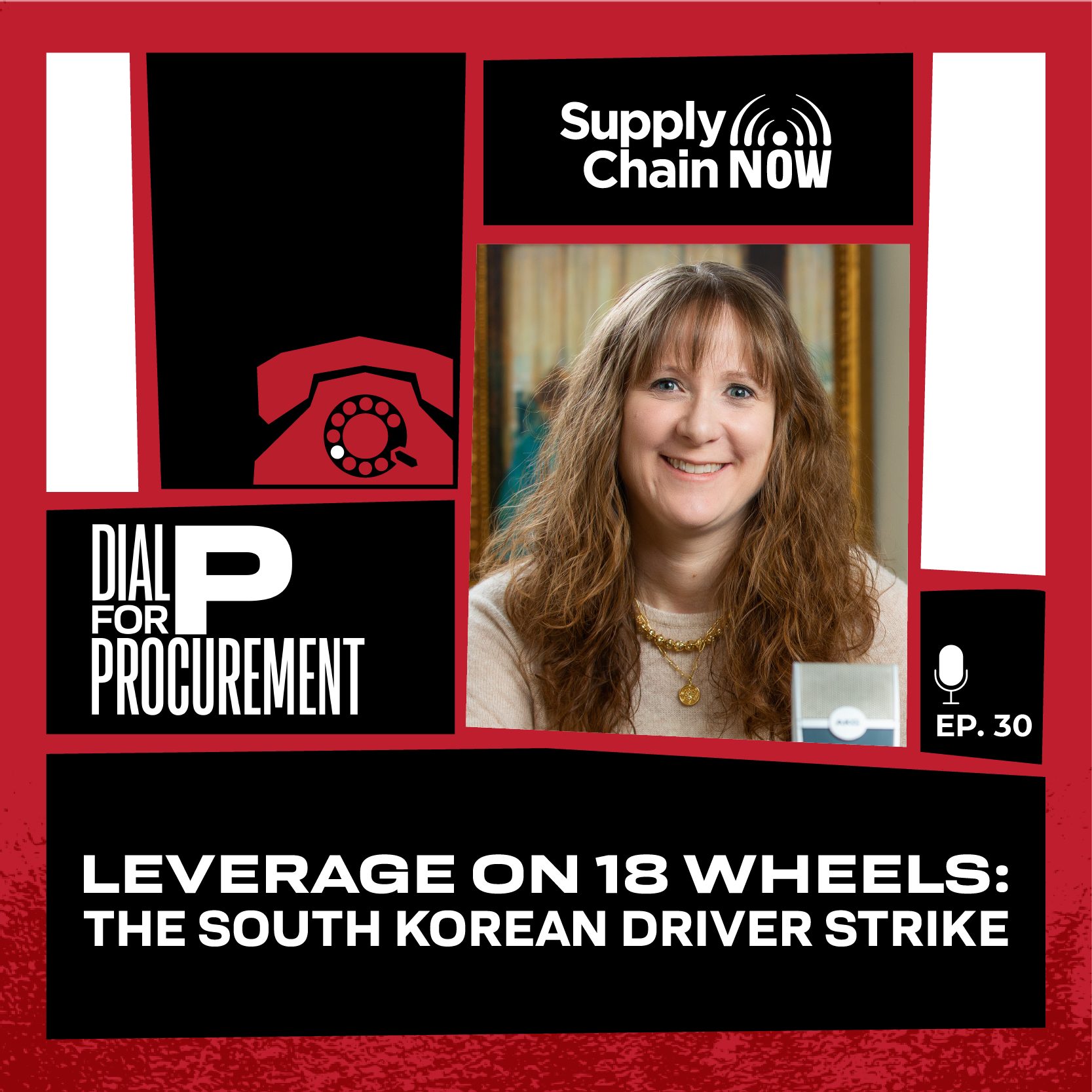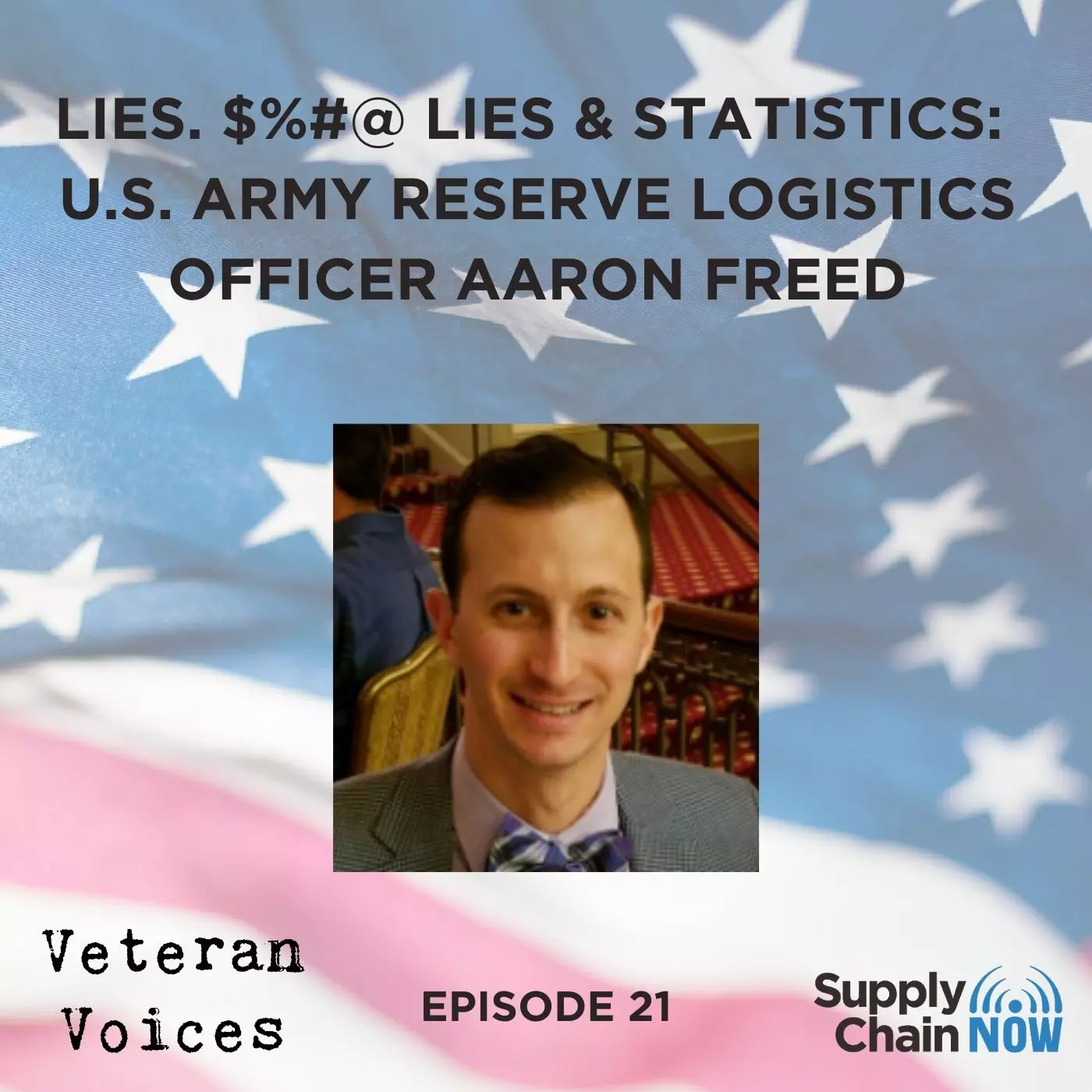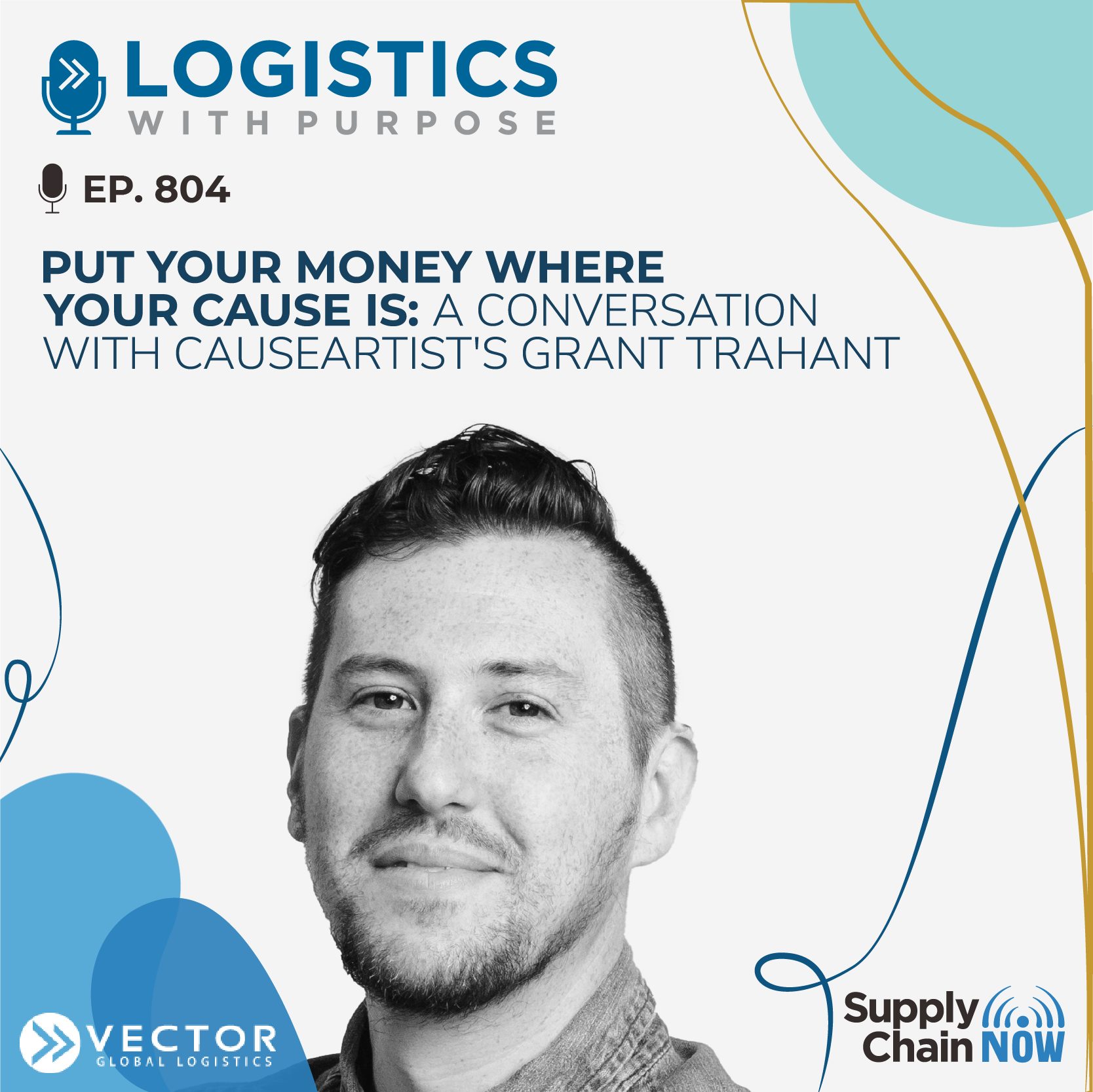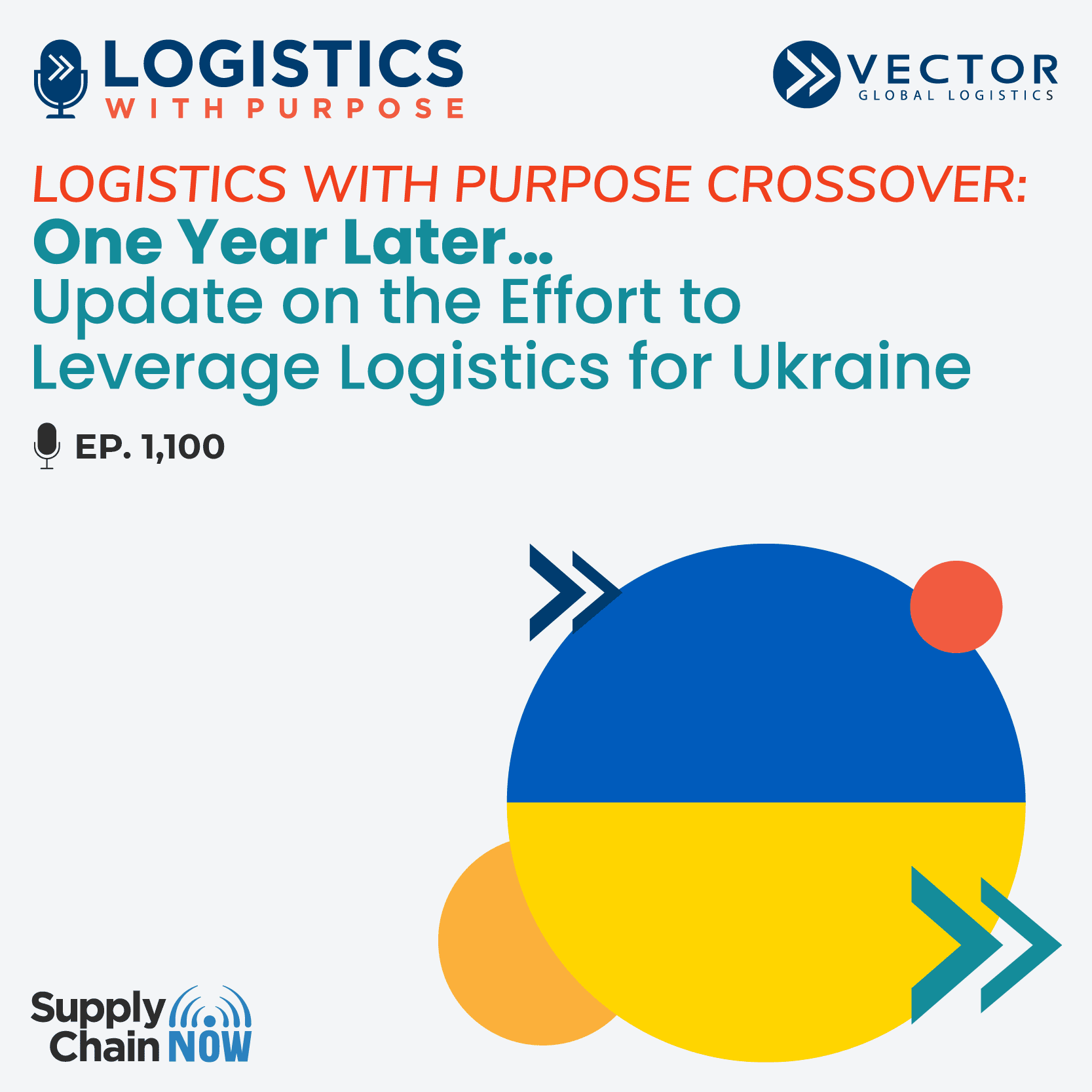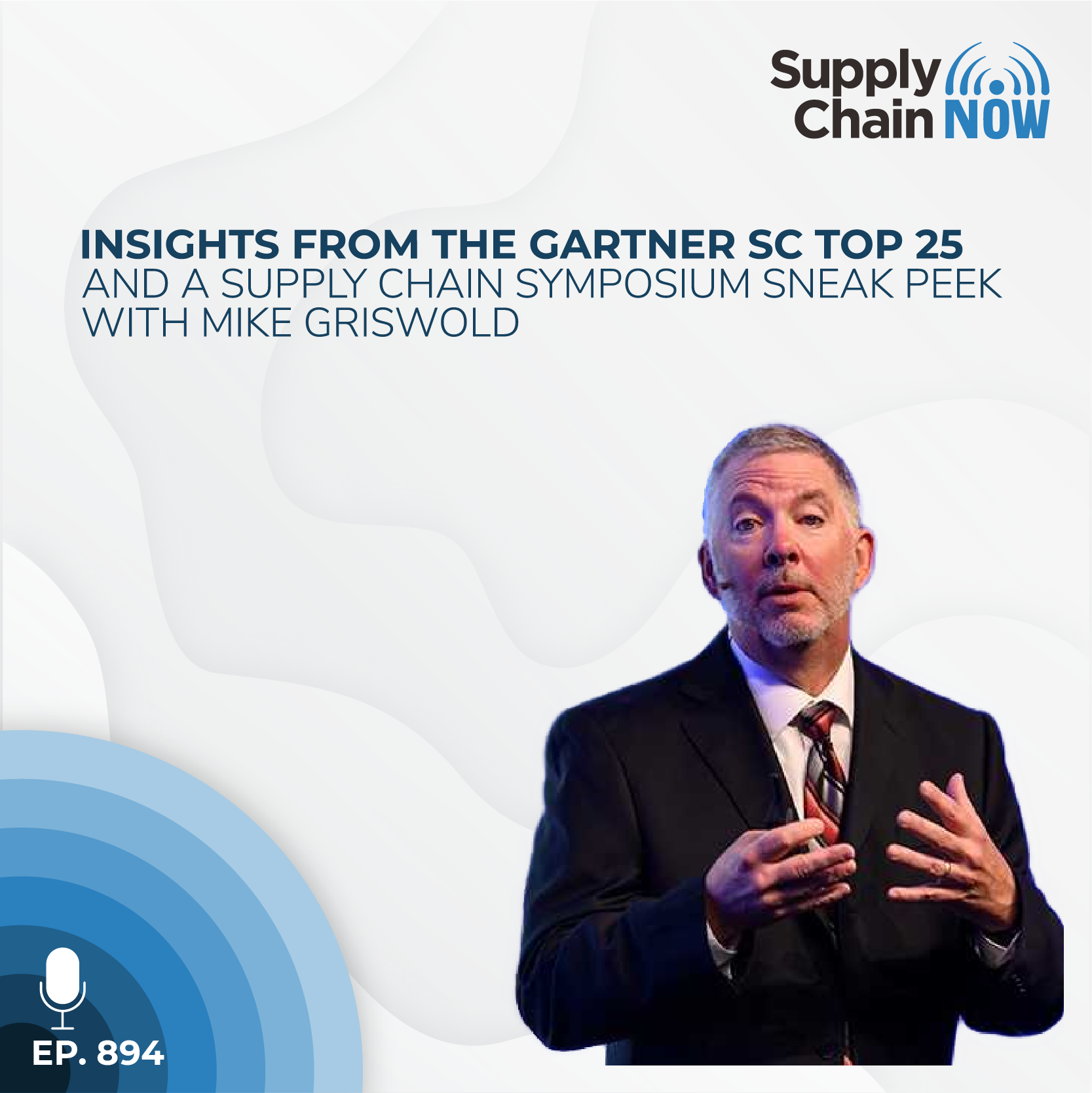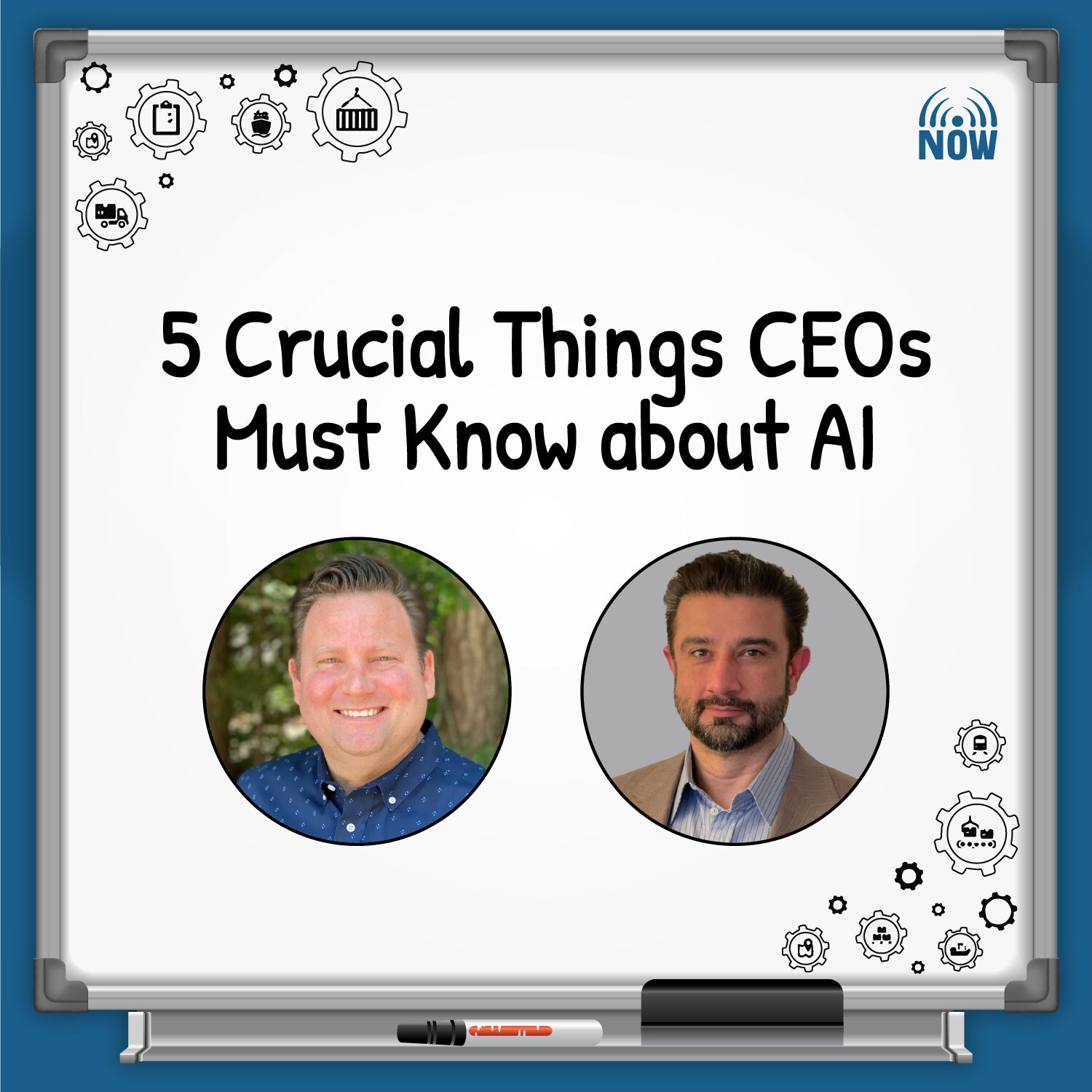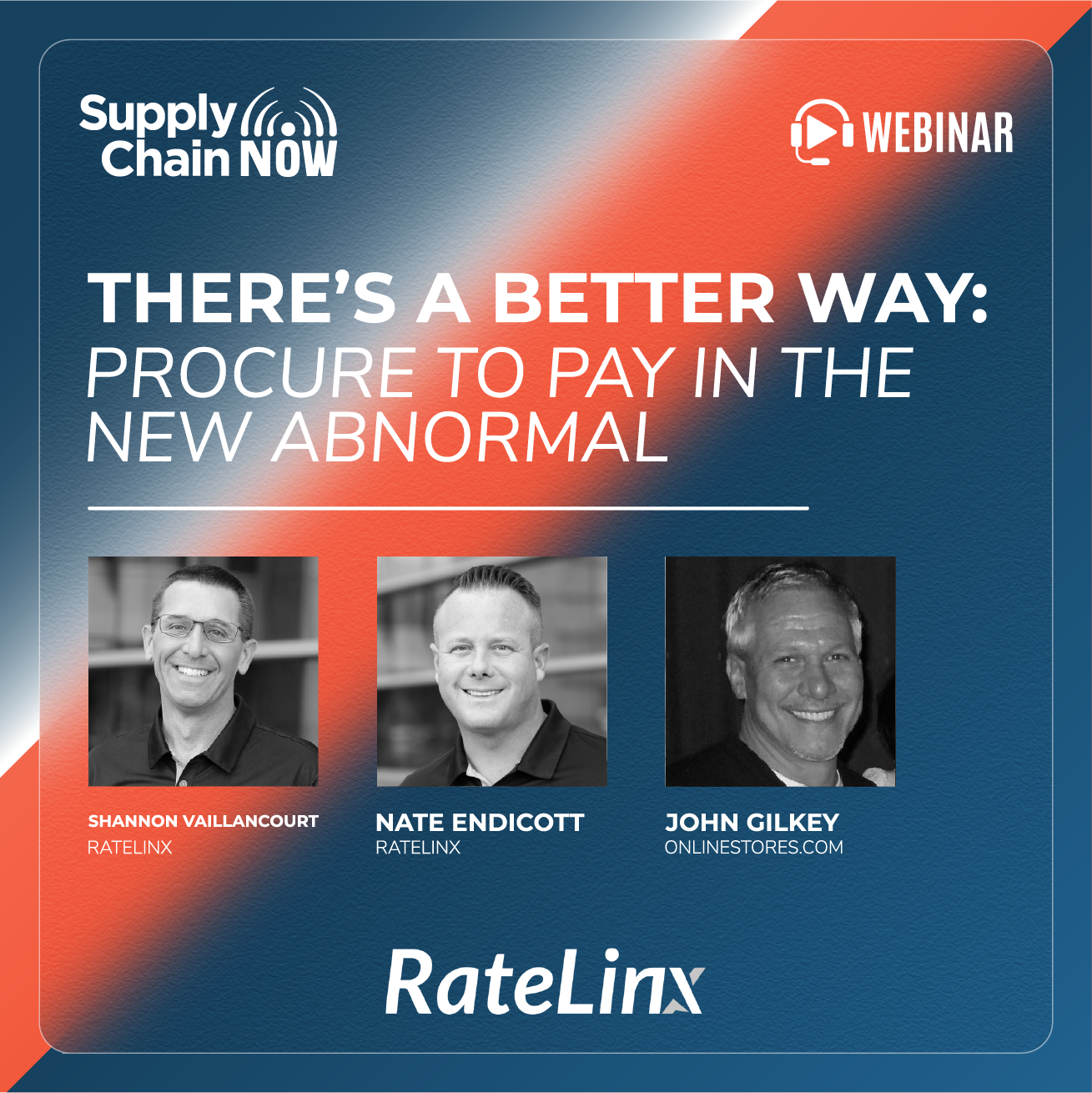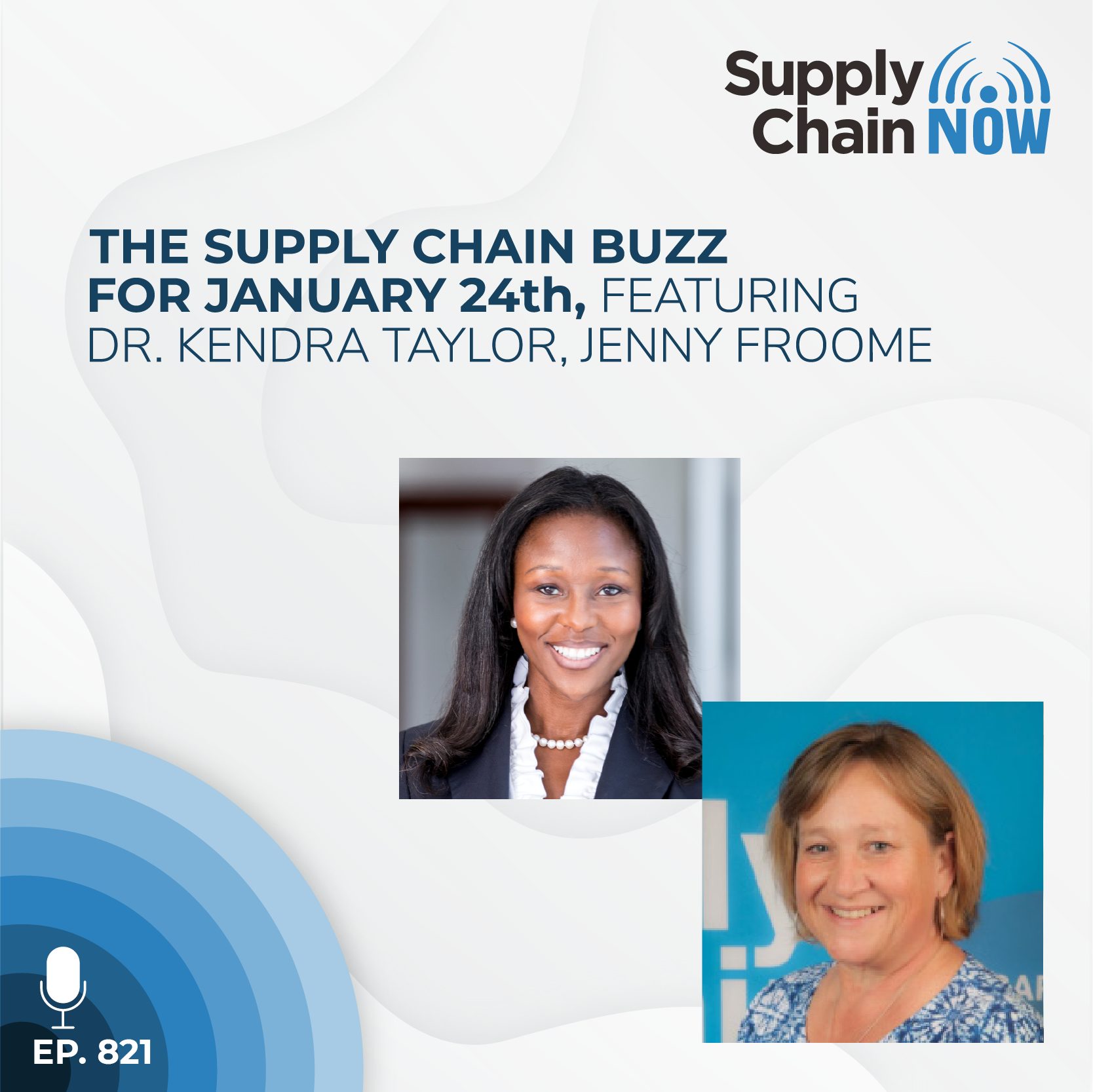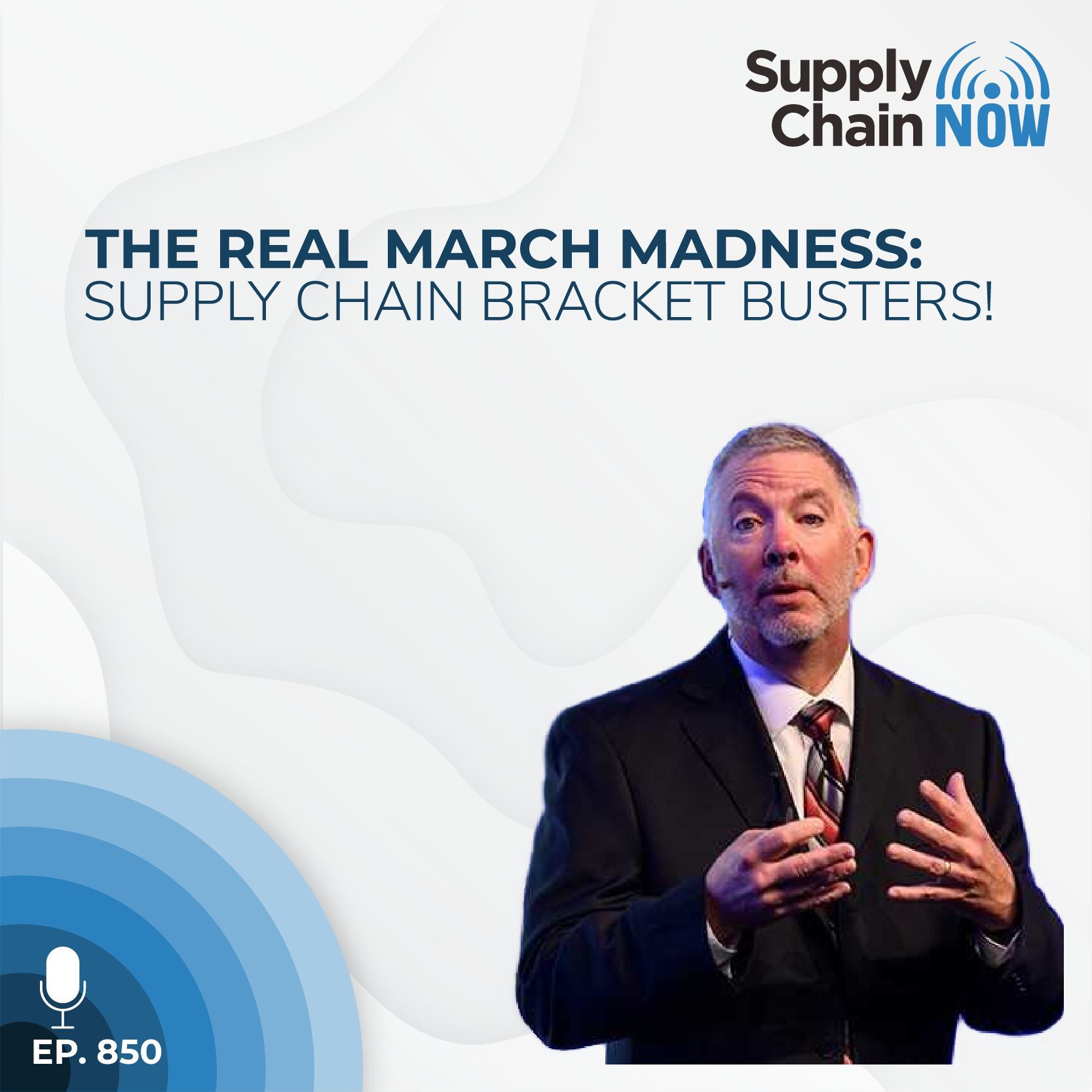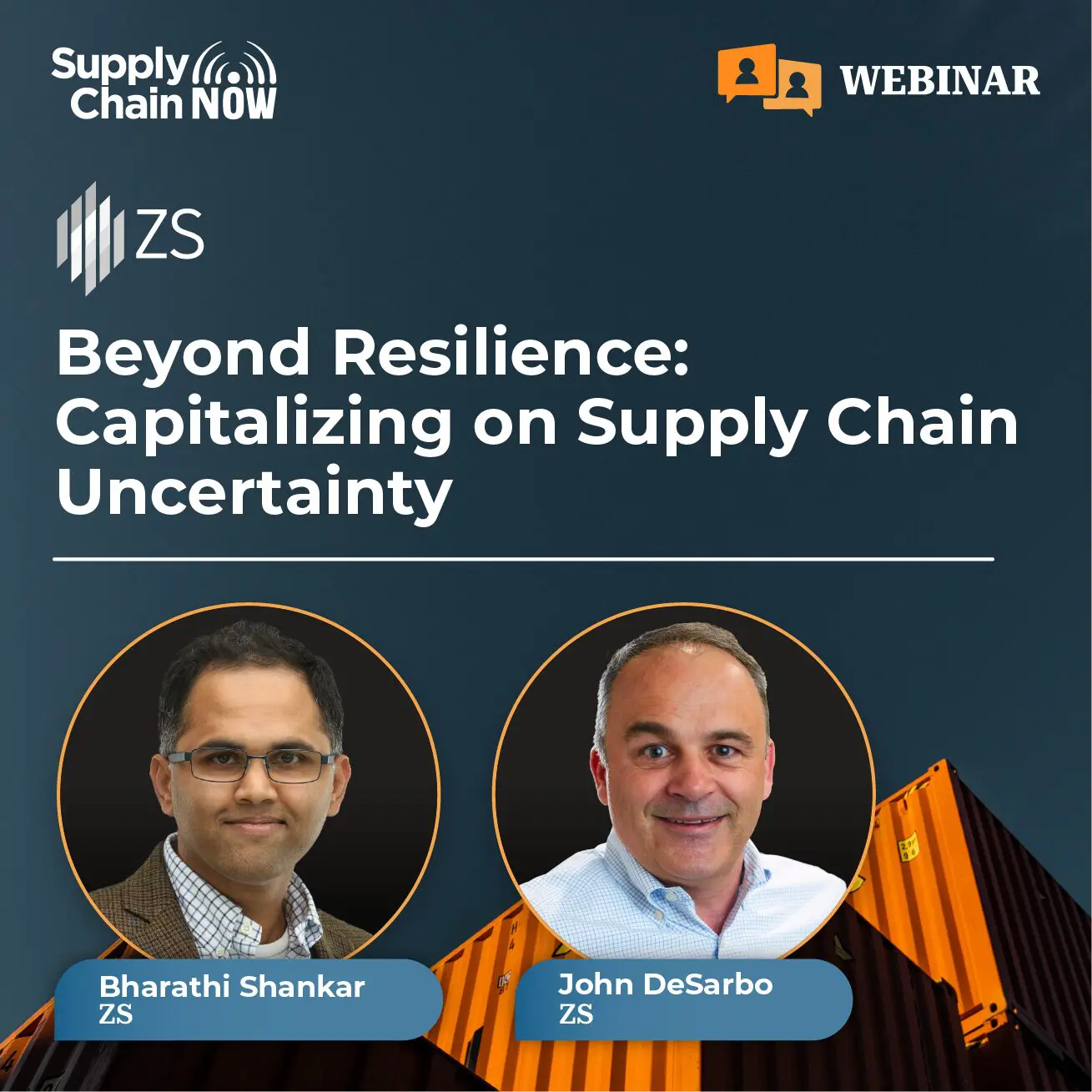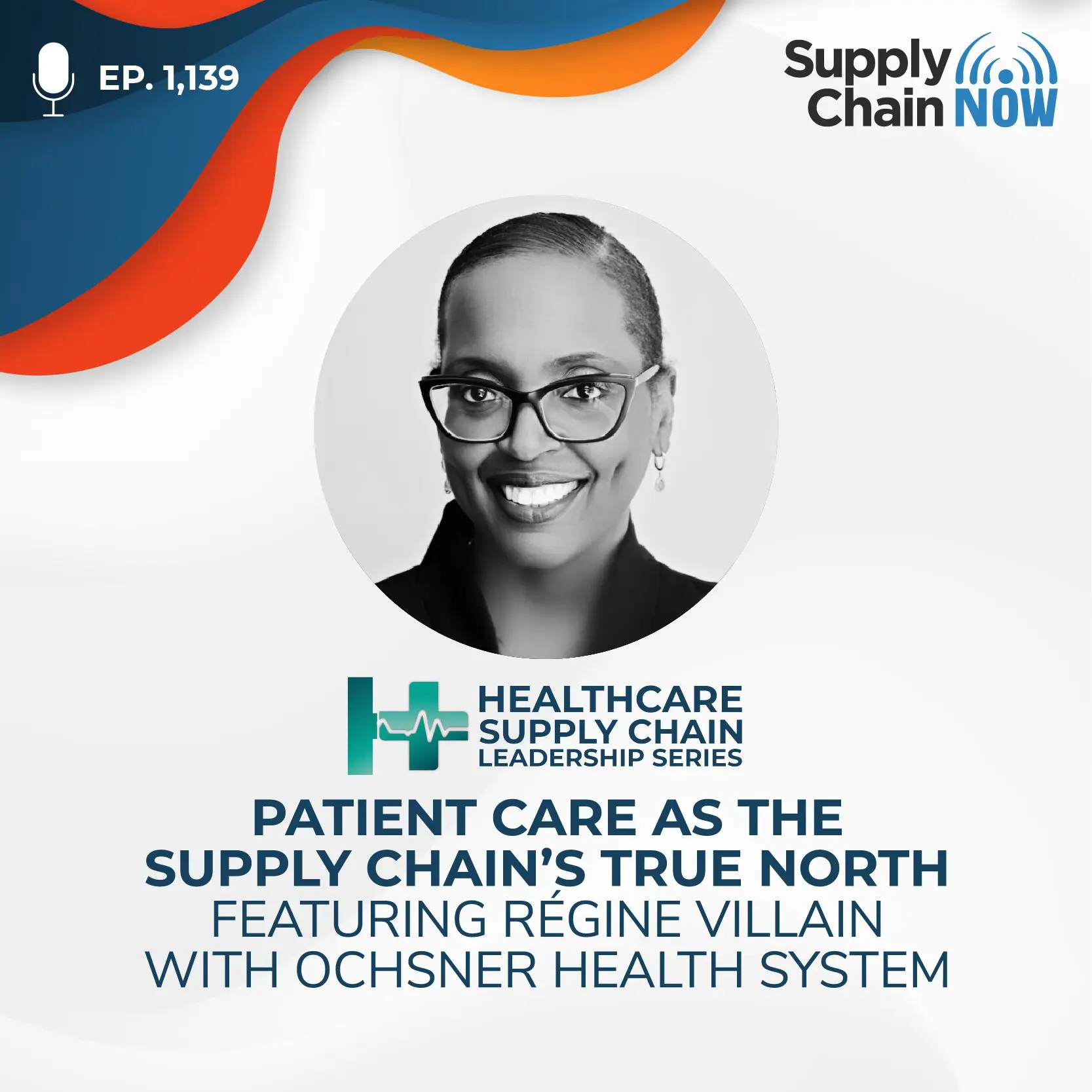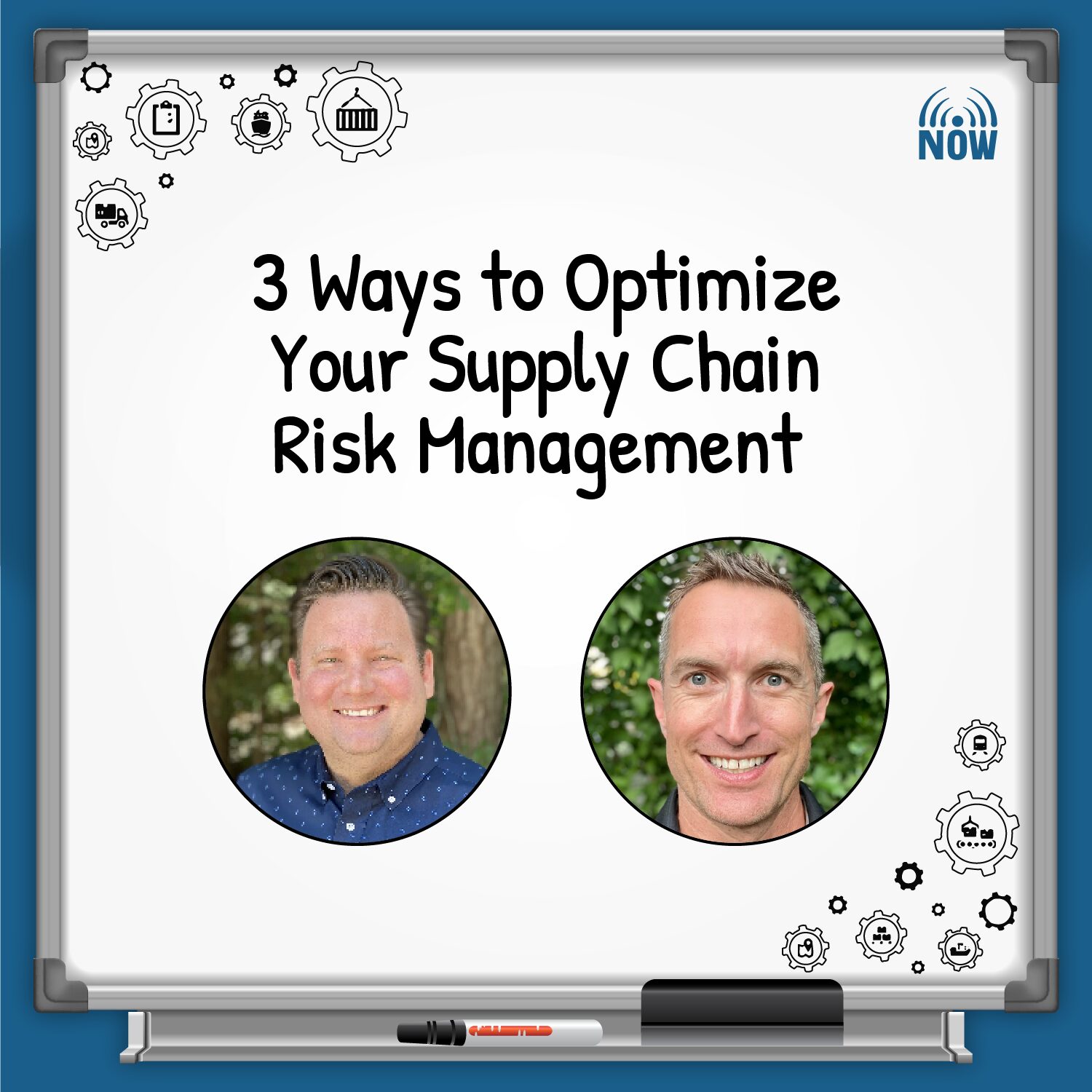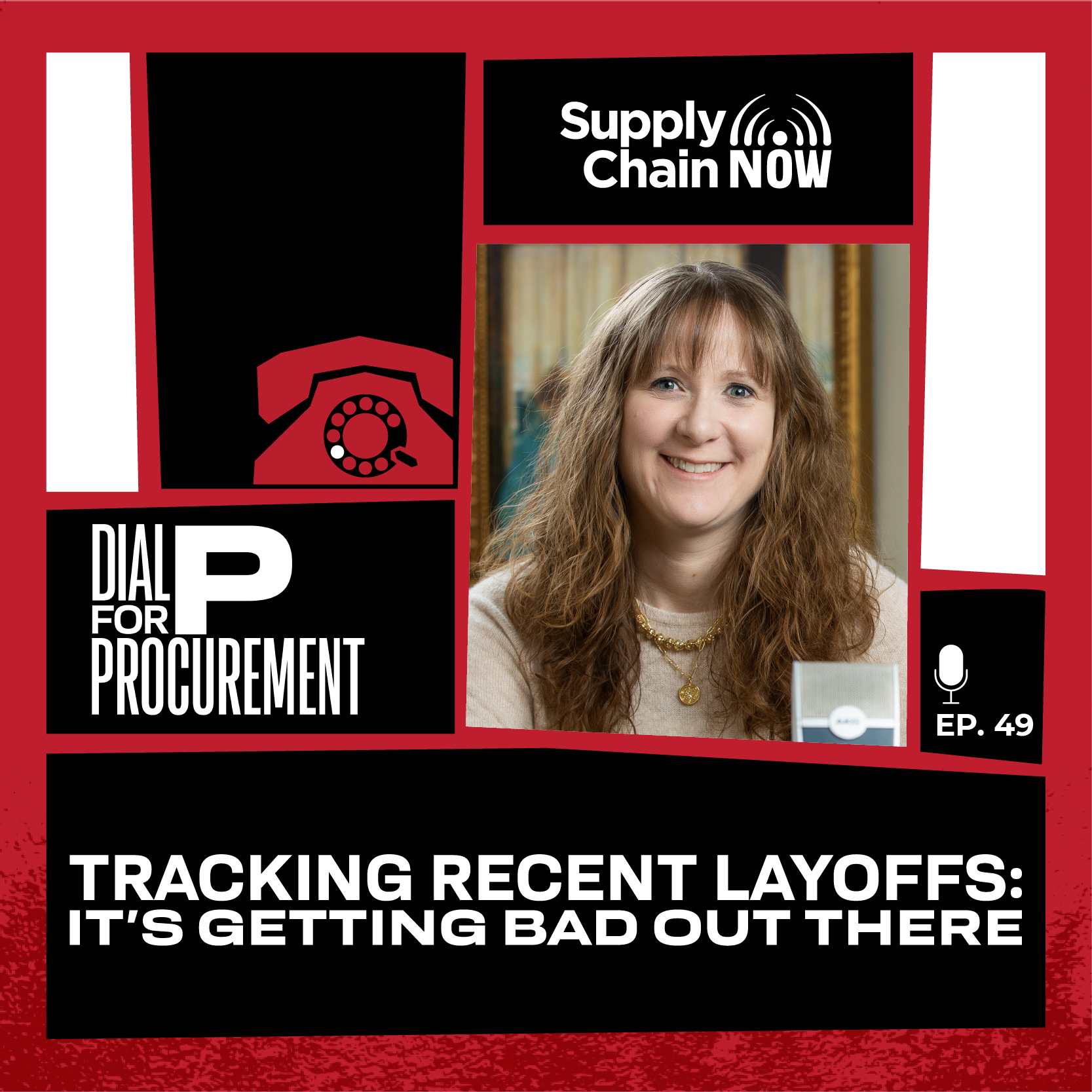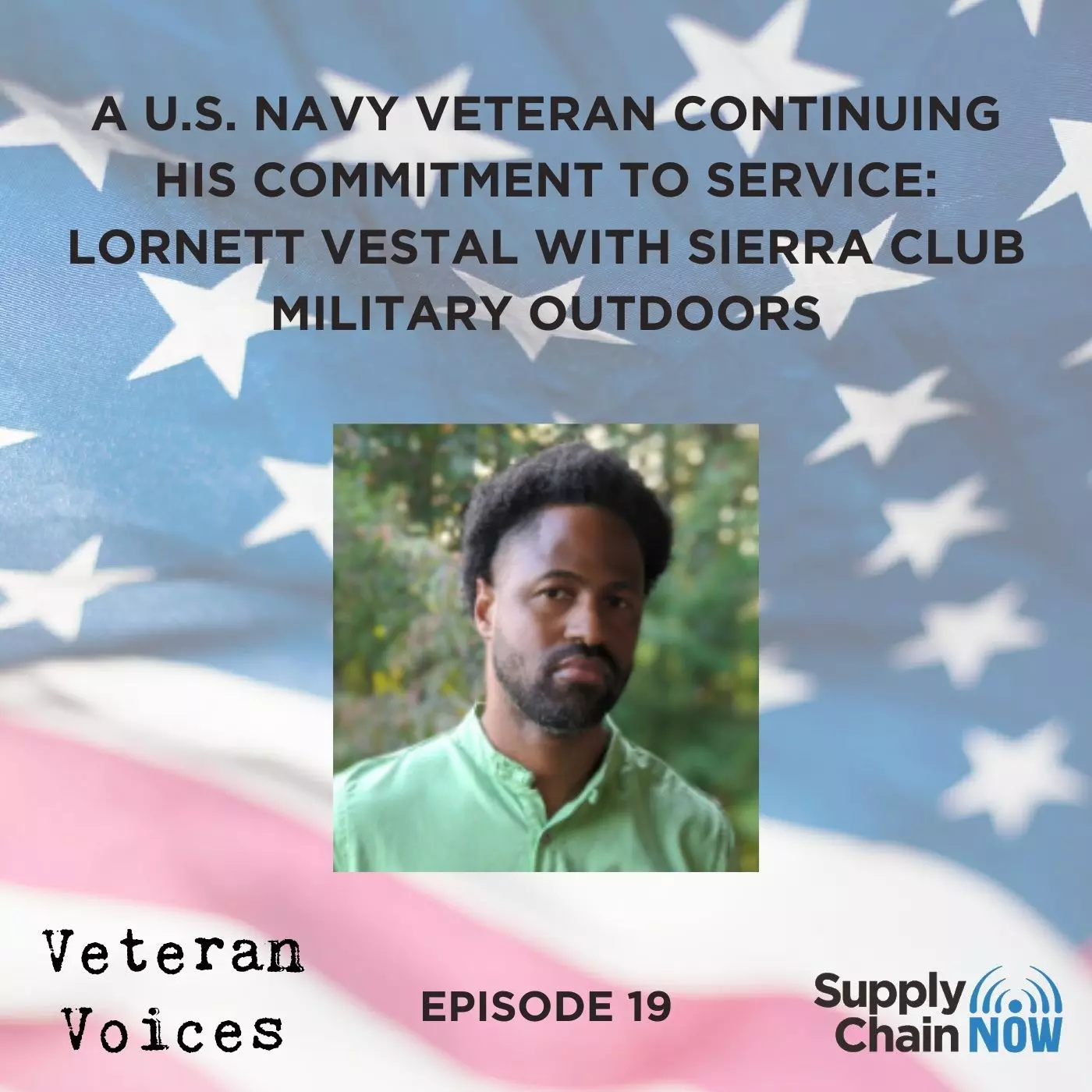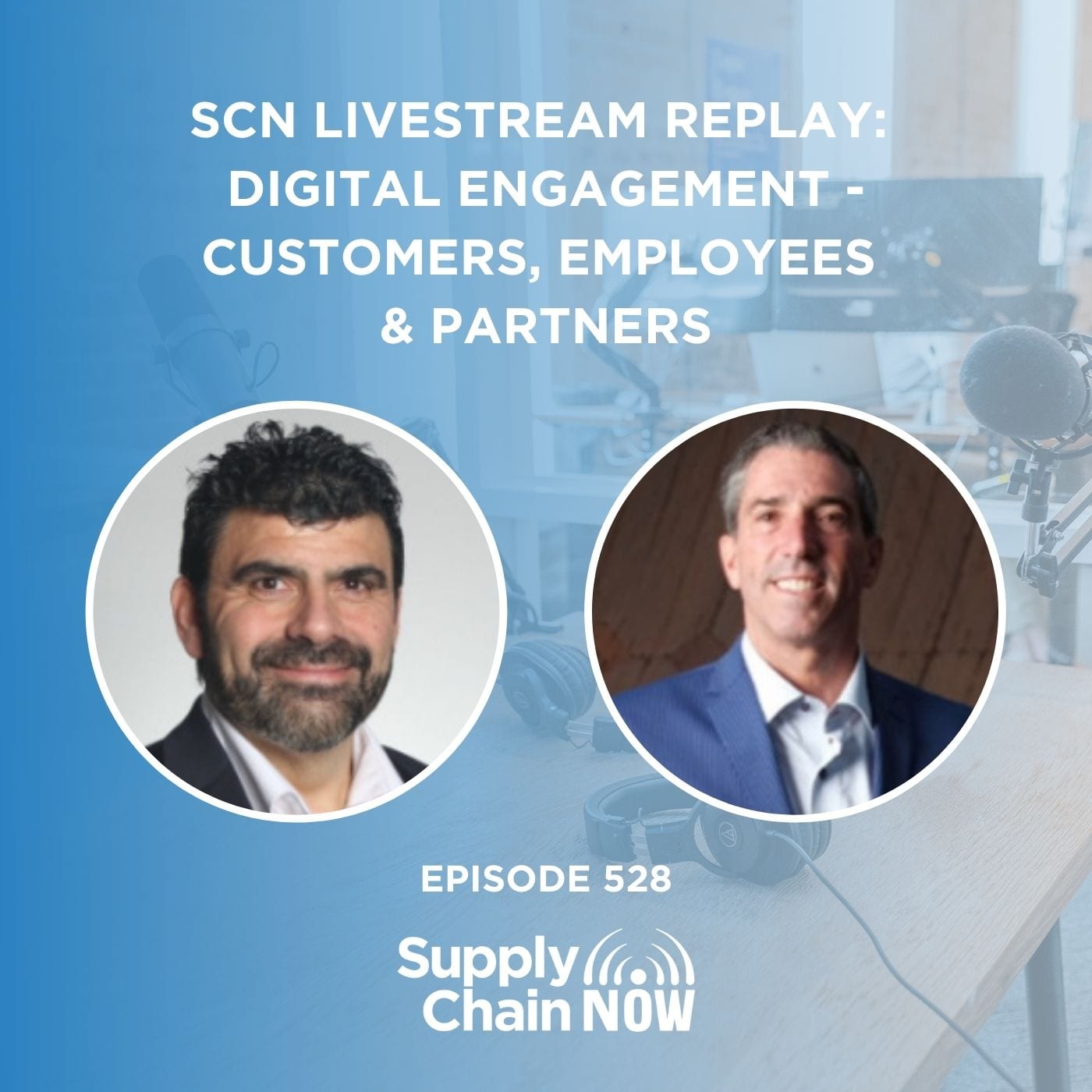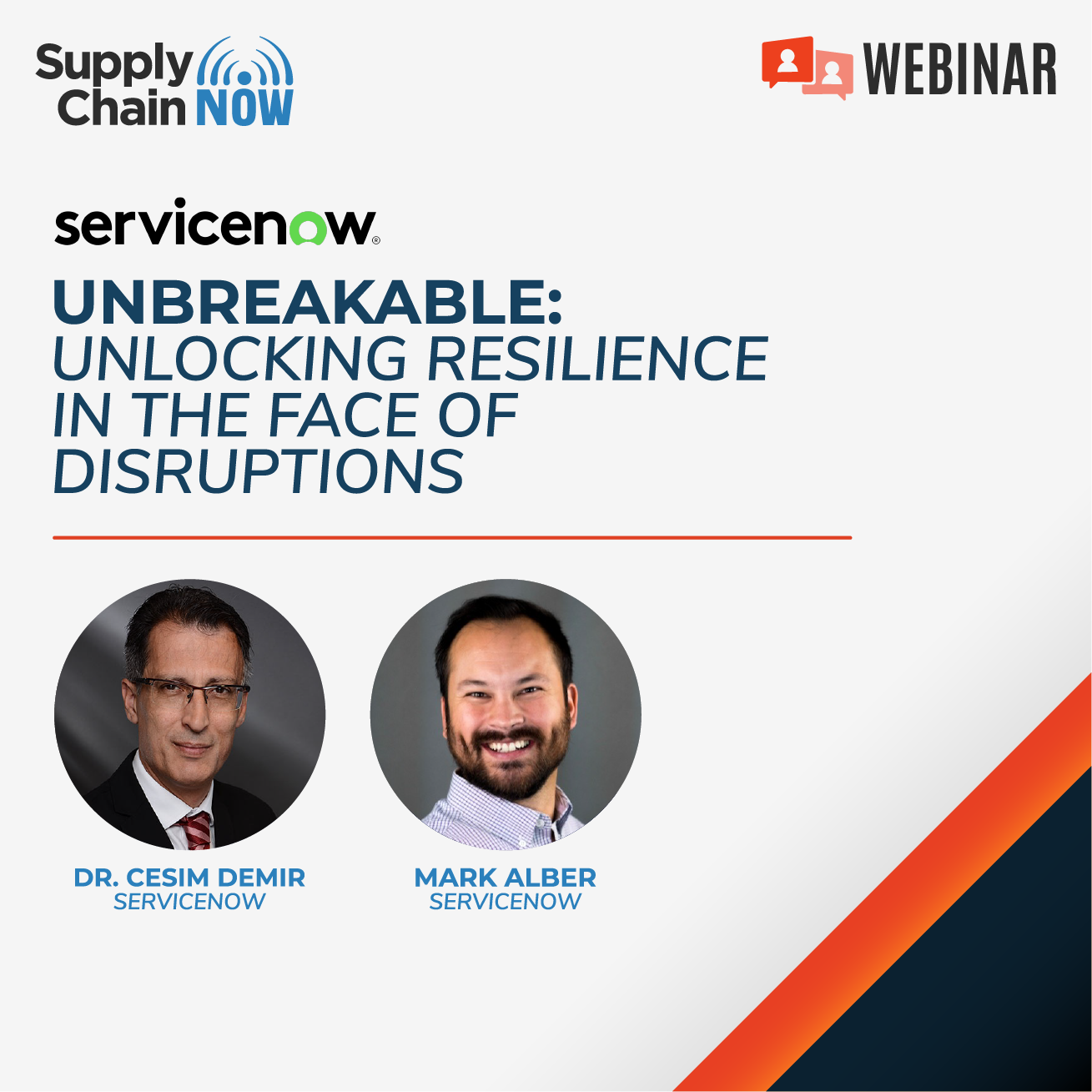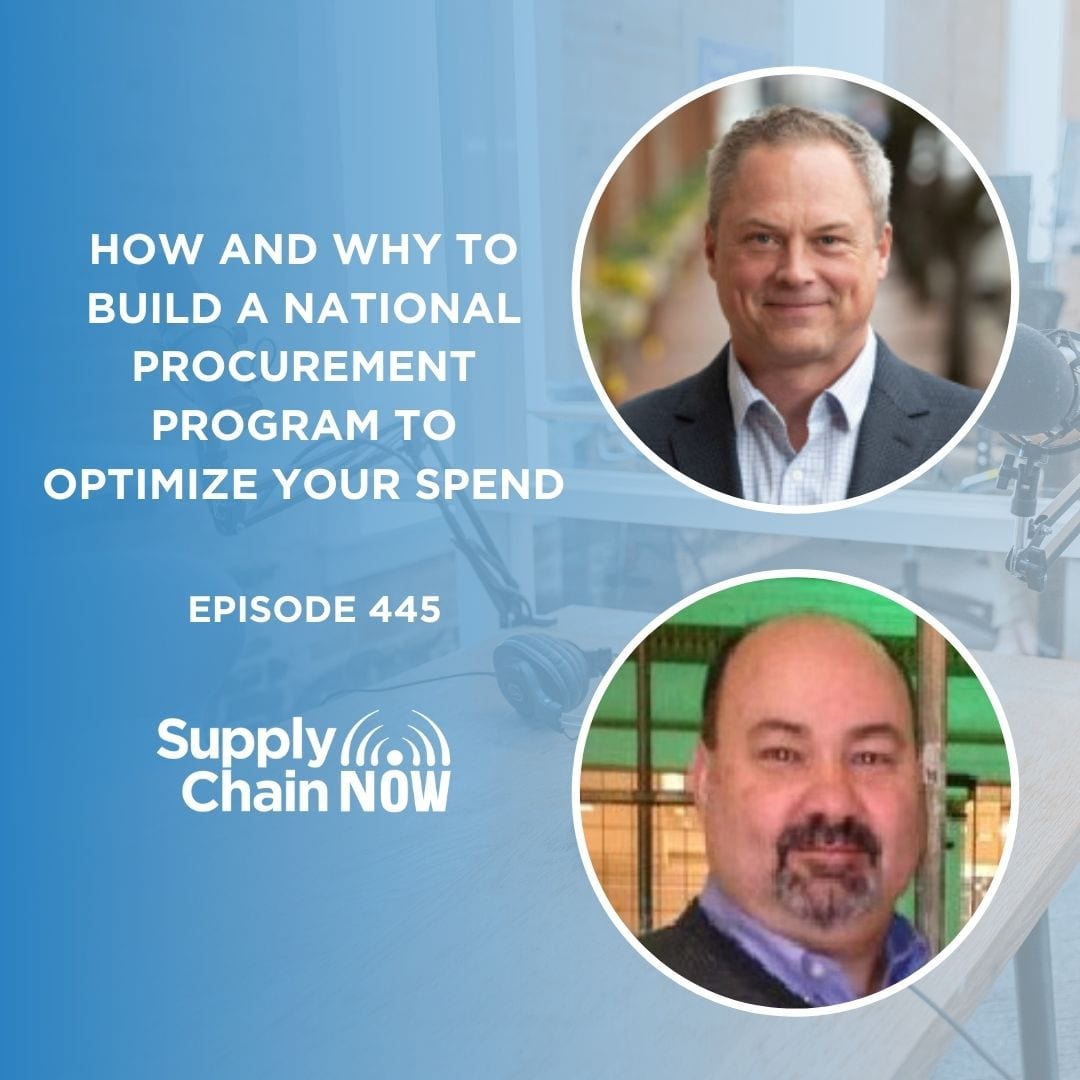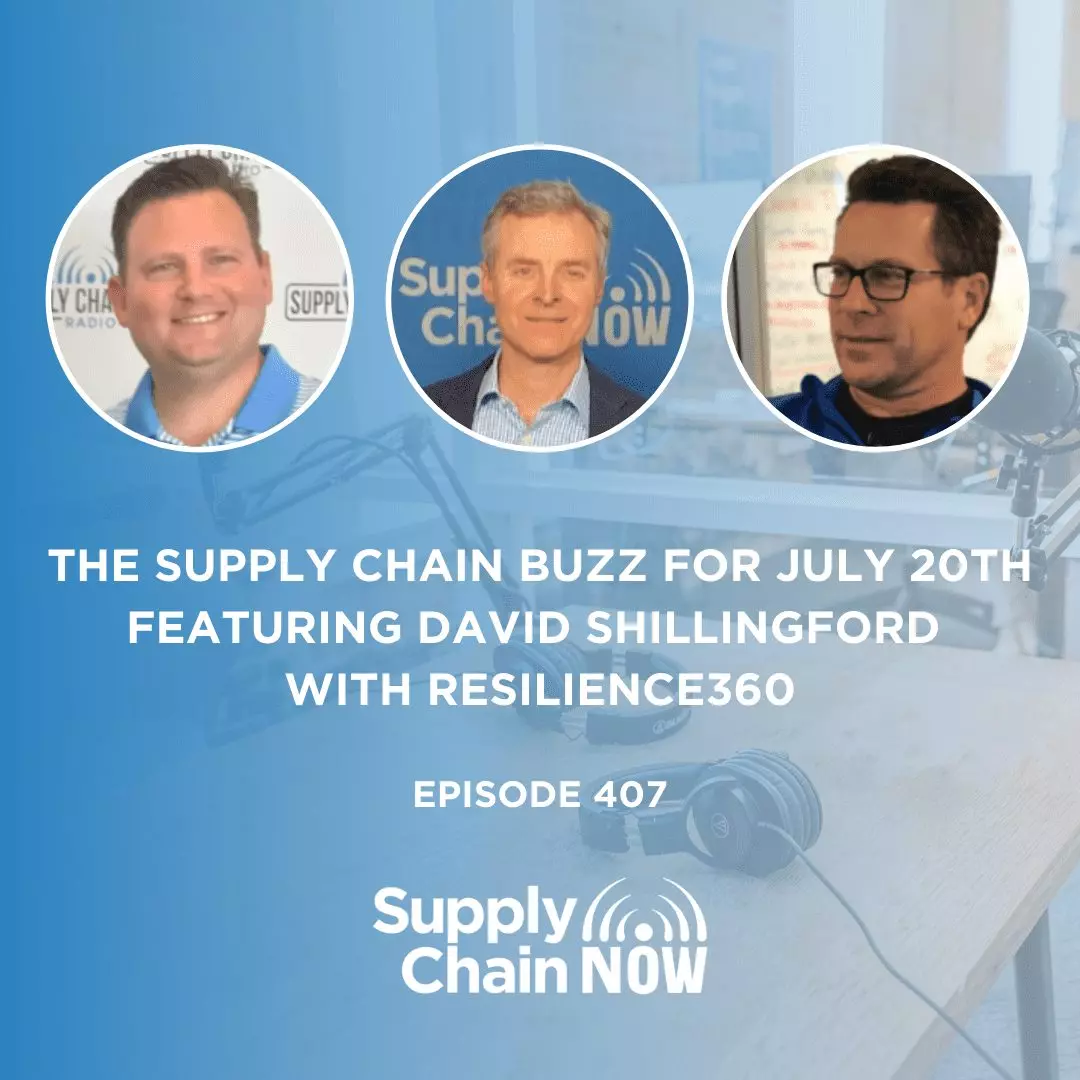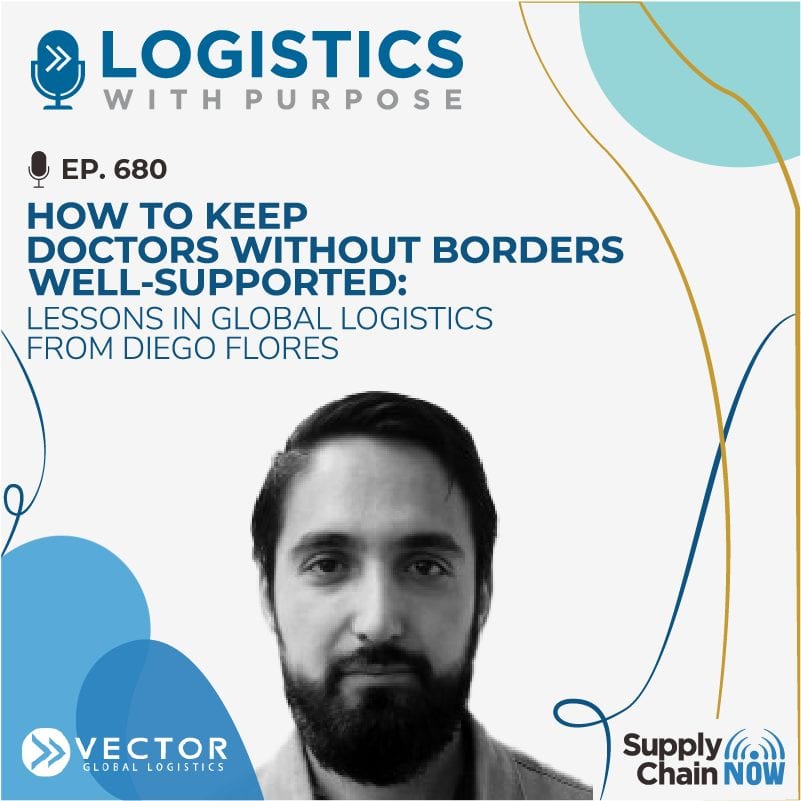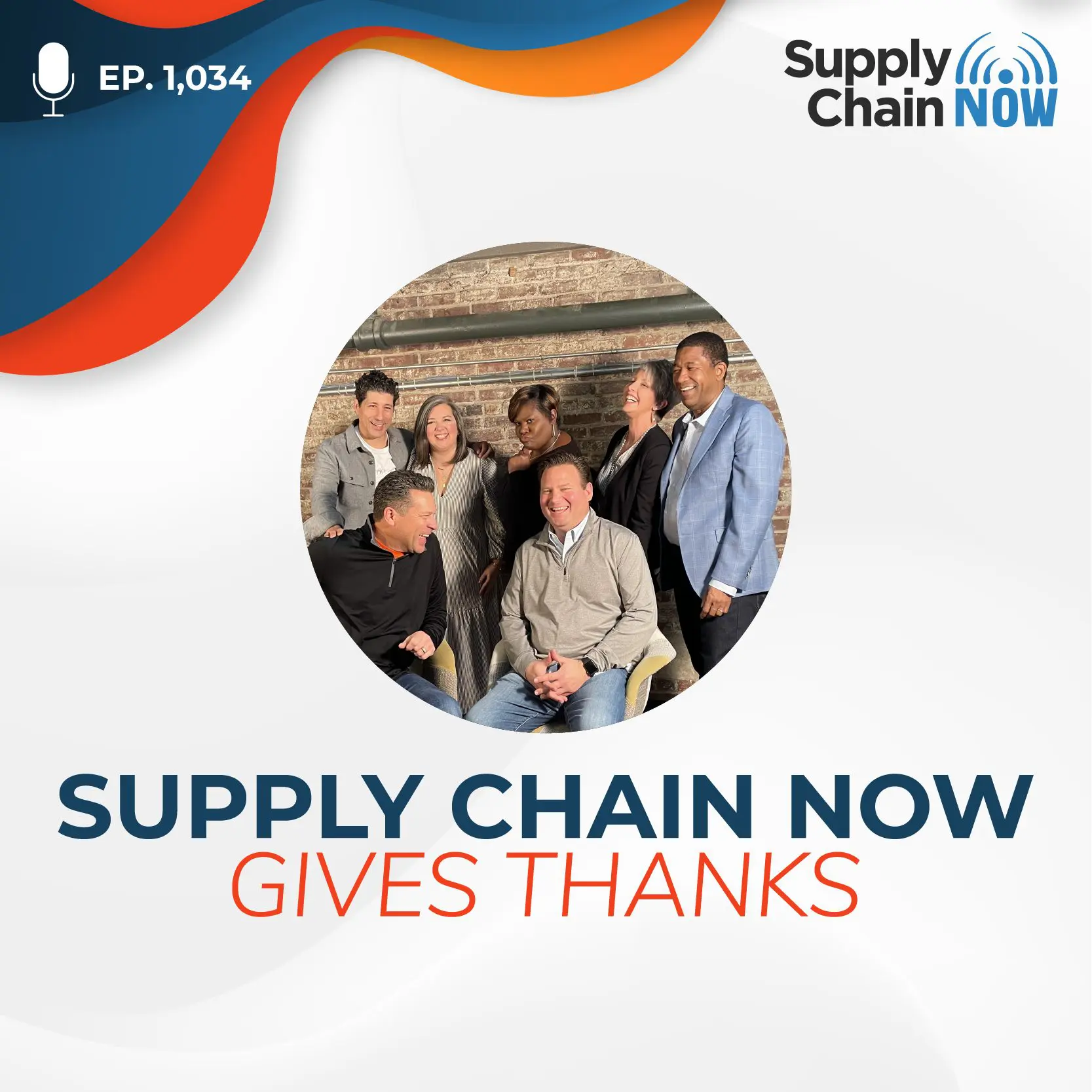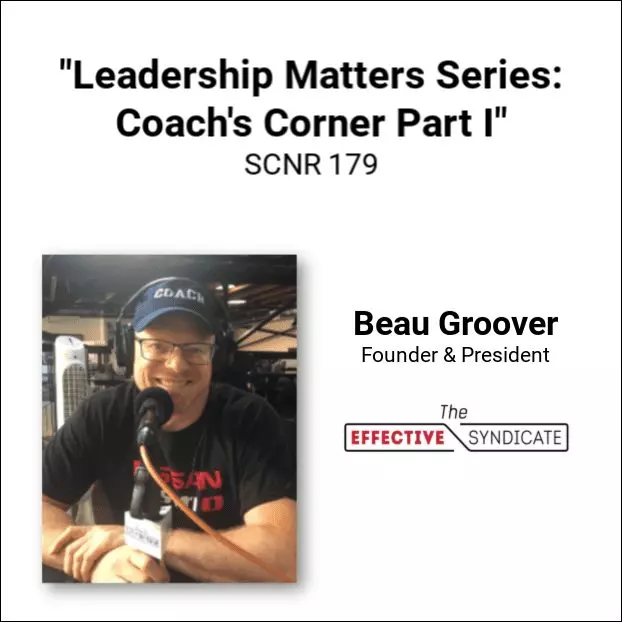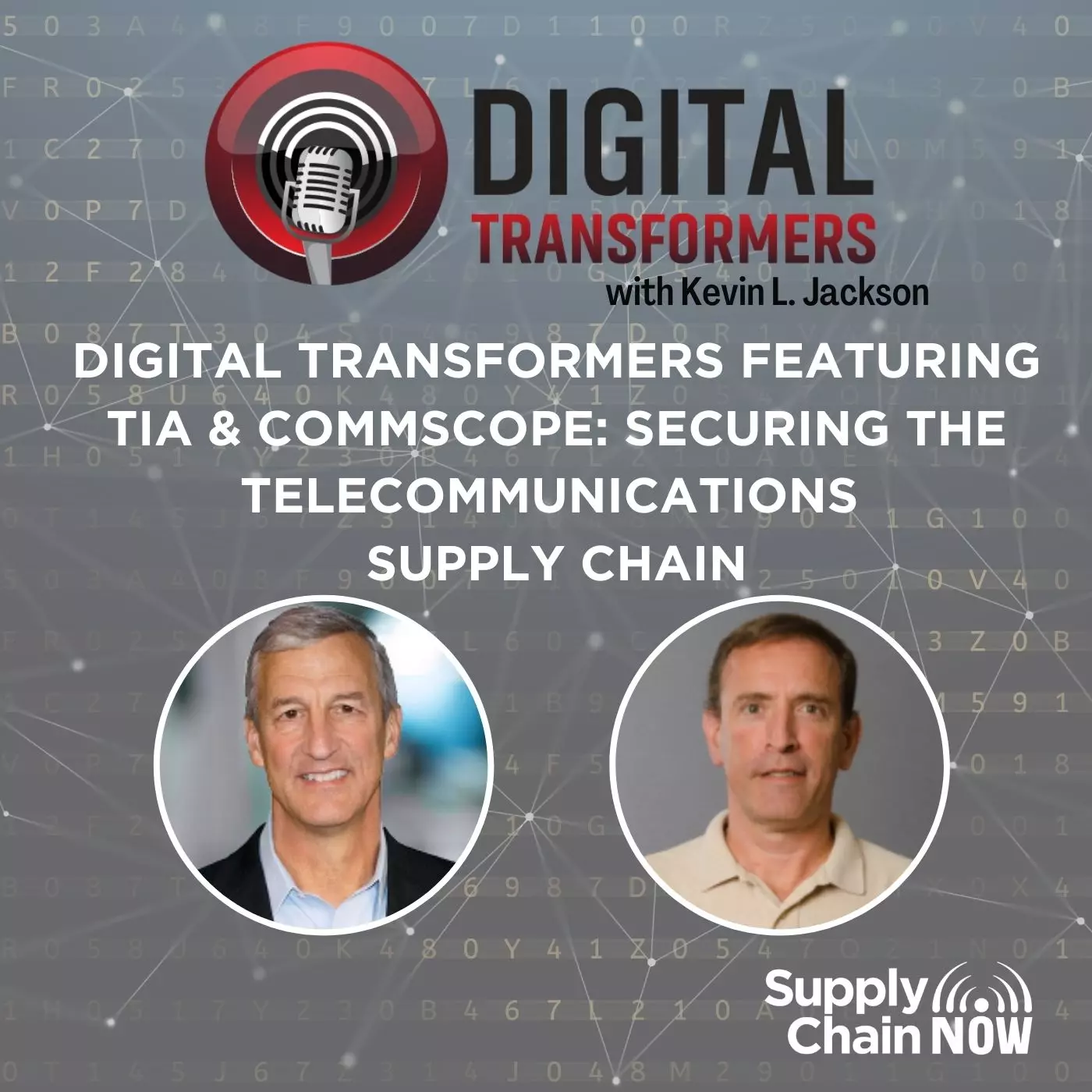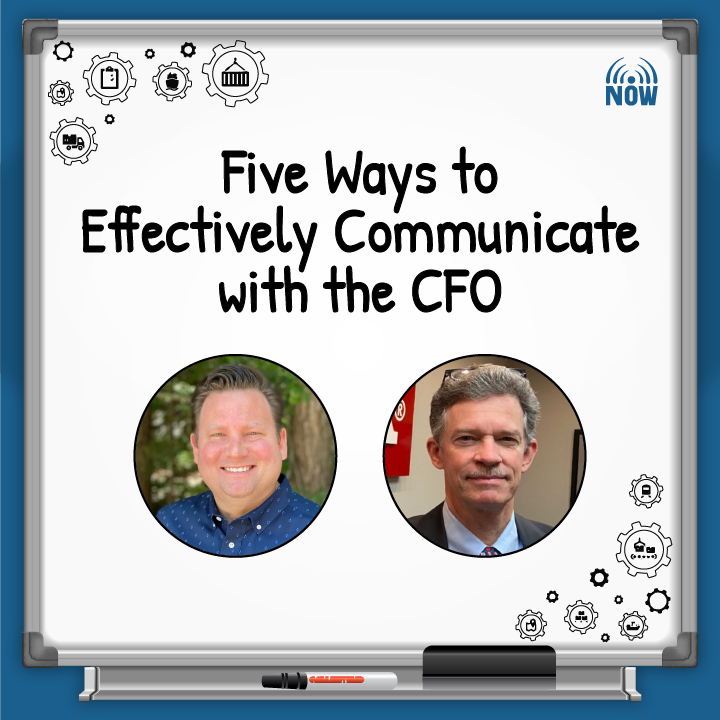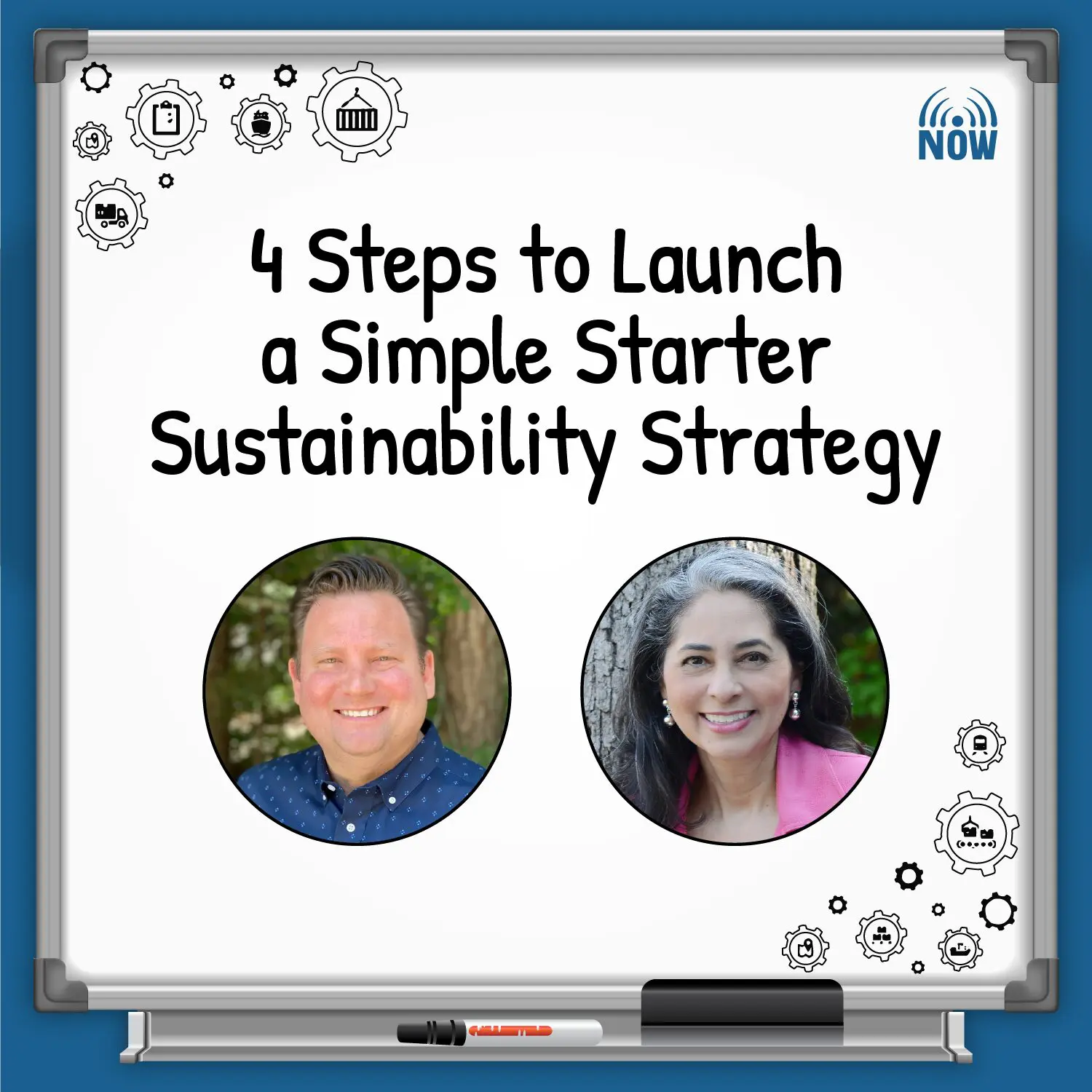
Episode Summary
Join Scott Luton and special guest Vin Vashishta on the latest edition of Whiteboard Wisdom, presented by Supply Chain Now. In this episode, they delve into five crucial things CEOs must know about artificial intelligence. Vin, a seasoned AI advisor and CEO of V Squared, shares his extensive knowledge on defining transformation, the big picture of AI platforms, foundational models, the current capabilities of generative AI, and the future of simulations. This insightful discussion is packed with practical advice and forward-looking strategies to help business leaders navigate the evolving landscape of AI. Don’t miss this opportunity to learn from one of the industry’s leading experts.
Episode Transcript
Scott Luton (00:16):
Hey, good morning, good afternoon, good evening, wherever you may be. Scott Luton and special guest, Vin Vashishta with you here today. Welcome to the latest edition of Whiteboard Wisdom here on supply chain now. Hey, VIN, how you doing? I am
Vin Vashishta (00:58):
Good. Thanks for having me. How have you
Scott Luton (00:59):
Been doing? Wonderful, and I’m about to be smarter after the next 20 minutes, so I always love learning from you. Then folks, we have a timely and intriguing episode teed up here today, especially for our community on YouTube. We’re featuring a practical, informative discussion on five things CEOs must know about artificial intelligence, five things, CEOs and everybody got to know about artificial intelligence. Now, as most folks know watching this right now, we seem to be in the golden age of ai, but they get beyond all the hype and no ROI. vin’s going to be sharing five things that business leaders got to know here today. Now, before we move forward, I think federal regulations require me to ask you to like and comment on this episode and of course if you enjoy the conversation, subscribe or share it with a friend, they’ll be glad you did.
(01:52):
So we’re glad you’re here. Hey Ben, I get the opportunity now to introduce you because some folks may not be familiar with all that you have accomplished already in your journey. So again, we’re featuring my friend and proven practitioner, VIN Vata. Let’s see here. CEO and AI advisor with V squared, one of the world’s oldest data and AI consulting firms. Now, VIN brings 30 years of industry experience to the table, especially when it comes to strategy leadership, software engineering, and applied machine learning. In fact, he has helped companies generate get this $3.7 billion of revenue with data and ai. Goodness gracious Vince, he’s also equipped over 4,000 students across the spectrum of industry with the knowledge and tools to continue driving ROI with their organizations through his popular training courses. He’s also the author of the book, which you can see it’s somewhere behind me from Data to Profit, the Playbook for Monetizing AI and Data and ai. We’re also very pleased to have officially our supply chain now cohost team here recently. You can learn more about all of this and we’re going to touch on this at the end@datascience.vin. That’s right, VIN for VIN, who is our fearless leader here today. Vin, great to see you. Welcome to Whiteboard Wisdom and let’s dive right in what you think.
Vin Vashishta (03:19):
That sounds great. Thank you again, appreciate you having me. Thanks everybody who’s watching for your time.
Scott Luton (03:25):
We’re going to cover five things and I think the first place we’re going to be starting is defining transformation and probably success your thoughts, Finn,
Vin Vashishta (03:34):
This is what we don’t allow people to say or ask. They have to do AI because we do ai, but no one explains what the journey looks like and what you get at every phase of the journey. We also don’t enable C-level leaders to ask this question and they need to, once you start opening the conversation around value, around what transformation does for the business, where that’s going to generate value, then you’re having a value centric technology strategy instead of a technology centric strategy. So let me define some basic terms. This is the first thing you have to know when we’re defining transformation. If you look down there at the bottom, underneath that black line, you’re seeing different types of business, zombie business. Obviously that’s not where any of us want to be. That’s where your progress really has stalled and you’re falling so far behind you’ll never catch up.
(04:33):
But what does that really mean in terms of technology? Where do you have to be to avoid being a zombie? Again, things that we don’t define. So what I want to do is look at each one of those levels and those phases and think about what do I want my business to become? We shouldn’t say this is what the technology can do, so you’re going to become an nvidia. It’s more like this is where our opportunities are and so this is how much we’re going to invest in. Do we want a competitive advantage? Do we want to become an innovator? These are the types of questions where we start with value and then we go backwards to technology. So lemme define these terms. We’ve got this maturity model that stabilizes the transformation, creates a roadmap and a controlled journey versus this sort of disjointed effort that you see in a lot of businesses that drains value, that makes things more expensive.
(05:26):
So let’s define it. There is no such thing as just ai. That’s one of the biggest myths. AI is a huge umbrella and there’s no such thing as an AI product that doesn’t start with data, but where do we get the data from? Well, expert systems, this is digital technology expert, meaning we ask smart people throughout the business how should this work? They give us requirements, we write code and the code is deterministic. That’s a new term to introduce. That means it follows basic logic. Very, very stable, very, very well understood. If this then that while these events are true, then do these things here and we have data. Data is part of expert systems because the data tell us, well, what conditions should we follow? That’s where we come up with encoding conditional statements. So we’re using data and we’re gathering data, so we just be able to use the same data that we’ve always been using to do all of this AI stuff.
(06:24):
Well, no. The next phase is gathering data for a different consumer in the expert systems and also bi expert brings their own heuristics, they bring their own expertise, they understand the domain so they know what to do with the data. But now we have a new consumer, we have models. Models don’t, it’s just math. The math doesn’t understand the domain. So we have to build the dataset in such a way that it helps math figure out some of the things that our experts understand, and now we’re moving into non-deterministic or stochastic systems where this is a probabilistic result. On the one side benefit, we can handle far more complex use cases. We can learn logic from data, we can create heuristics and simulate some of the things that people can do just by using the data. But just like you’ve seen with LLMs, yeah, that hallucination comes with every machine learning model.
(07:23):
We talk about it and emphasize with LLMs, but truly it comes packaged into everything. Data’s different. We have to gather it contextually. Business context, customer context, context is just the thing that generates the data. Once you understand what generates the data, you understand what the relevance is. It could be a machine that’s generating data. It could be a car driving on the highway, it could be a person doing a job, it could be a customer using your product, could be someone thinking about buying your product. All of this is contextual data. It helps give models context so it knows where this data fits in with all the other data that’s being given to train. What does that do for us? Now that we’re gathering data contextually your analytics and basic descriptive models, which are simple machine learning, those can give you a whole lot more value.
(08:12):
Why You can build them using those cheap methods and you get very reliable models by just describing the data because you have context with it so you can do a whole lot more cheaper. So those first few AI initiatives, inexpensive methods, very simplistic, they can be delivered quickly and we’re using models that describe the data. That’s all they do. Next level experiments. Why are we talking about experiments? Well, at some point we shift from just taking the data that’s there. Okay, it’s there. Let’s grab it to let’s engineer things that generate data that we need that we can turn into more reliable models or more functional models. And that’s what an experiment can help us do. We can engineer these data generating processes and as a result, we’re controlling what data is being built. We can deliver more reliable models. That leads to knowledge graphs.
(09:11):
You’re hearing probably a lot of whispering about knowledge graphs. Maybe if you’ve heard the word ontology before, all you have to know about a knowledge graph is we are now just instead of single data points, we’re connecting concepts. So if you look at the column in a database, that column label tells you a little bit about the type of data that’s stored in that column. What knowledge graphs do is tell you not just the column name, which is really the concept, but also how it is interconnected with other concepts. Why is this important? This is the next level of contextual data gathering and you get so much richer data sets out of a knowledge graph and they can support more complex models, more complex ai. Just like LLMs, you’re hearing this a lot where these knowledge graphs help your LLMs stop hallucinating as much and you can use them to build models faster, build more reliable models, build more explainable models.
(10:12):
Again, makes things simpler and faster. Multi-agent systems where, oh, we’re in the future and not necessarily multi-agent systems are really, you could have a whole bunch of digital apps and one model that just orchestrates them together. You could add in access to data sets and your model is orchestrating the access between them. And we’ll talk about orchestration in a little bit. Multi-agent systems and robotics. Robotics need multi-agent systems to be functional and we’ll start seeing robotics come into play and in your business, very likely you have some components of robotics already supporting you. Next we go to simulations, which we’ll get into at the very end. It’s one of our forward looking concepts. That’s where robotics two, this more complex robotics scenarios come in. And then finally the iot. You know the iot had to be in here somewhere that will tie in with ai. Why? Because we’ll be able to gather data sets that we’ve never been able to gather before. We will have more data than ever and we’ll be able to build models that weren’t possible in the past. This is part one. Here’s some definition of terms. You have an idea now a little bit better about what AI is. What we come up with next is why you care. Hey vin, really quick, really have to explain it.
Scott Luton (11:35):
Vin, I love this level setting and I love that maturity curve used walked us through. I want to throw in one quick tidbit for our supply chain folks out there. You may already know this because we’ve got the smartest audience in all of the globe. Research from organizations such as Gartner show that top supply chain leaders folks, as Vince said, it’s not the future. They’re already using AI to drive improvements and outcomes big time, more than twice the rate of lower performing competitors. So AI is certainly furthering the gap between the good and the bad, but we can lean on vin’s expertise and even this 20 minute lesson here to help figure out the path forward to be part of the good crowd. So alright, so Vin, here’s stillness. First of the five things CEOs must know about ai. Let’s wrap up defining transformation. Please go right ahead. So now why do you
Vin Vashishta (12:27):
Care? Well, because you’re going to be able to manage your business in a different way because you’re going to be able to improve your business in different ways. You’re going to be able to deliver value to customers in ways that weren’t possible in the past. And you have to think about this in terms of a pipeline because you don’t simply step from one place to the other. Why would you step over value? Why not get value as quickly and as inexpensively as possible? So let’s use simple technology where we can simple AI and let’s focus on more complex AI where we have opportunities and use cases. So you can see the capabilities up here in that top line, running under data to profit, that data maturity pipeline explains how you’re going to progress in terms of your data and how your data enables the business.
(13:22):
Next, how do workflows change, not just internally, but how do your customer’s workflows change? And when you get to more advanced technology, they no longer have to go task by task, by task by task. They can say, here’s my outcome, here’s the experience I want deliver it. And it’ll be managed by a combination of these multi-agent systems and people obviously we’re still here, it’s not like we’re disappearing no matter how complex or advanced the technology is. So you can manage your business by intent and outcome and your customers can get value from your products by intent and outcome. Instead of having to do step one, step two, step three, here’s what I want. Instead of saying I need to post a job description for a software engineer, you can say, I’d like to hire a software engineer and I need them to be here by this date. What do we do? And now you’re managing by intent.
Scott Luton (14:21):
I love that. Then by the way, instead of spelling it out, step by step, telling system what you need and when you need it. I love that.
Vin Vashishta (14:31):
Yep. Alright, so now we’ve laid the groundwork of why you care about this. Not only what will change from a trends from the technology transformation side, but what does it do for your business? Now let’s get a little more granular. Let’s talk about some of this cool technology. Where are we going to go?
Scott Luton (14:53):
The big picture when it comes to AI platforms, if I’m not mistaken, Ben, is that right?
Vin Vashishta (14:58):
That’s right. All right, so I talked about products, right? Products are going to look very different than they do today. I talked about all these different technologies and you’re probably thinking, okay, in terms of technology, don’t we just drop digital and put everything in place? That’s ai. Don’t we just drop data and do ai? Don’t we just get rid of all this other stuff? No, technology is not like an iPhone. We will have a new type of platform. You don’t trade your old technology in and get a brand new, entirely new piece of technology. You’re upgrading incrementally and you’re only upgrading where it makes sense. Sometimes that good old expert system, digital, the thing we call legacy, if it’s doing the job, why replace it? Why would we do that? So we want a more complex architecture. You’re saying whoa, whoa, whoa. Complexity is expensive, complexity is hard to manage.
(15:53):
I don’t want my customers or the people that work within the business to be dealing with complexity. And that’s why models are so important. You can see at that top layer, generative AI is a new type of interface and what it does for you is it’ll detect intent, it’ll gather some additional instructions when your customers or your users aren’t exactly clear about what they want to do and it provides them, and we’ll talk a lot more about this when we talk about what generative AI can do. It provides them with a new way of interfacing with technology, but it obscures all that complexity away. So we have a new user interface, and I’ll talk about that in just a second, but we don’t get rid of all of our existing technology. We still have apps. We now start bringing in some agents, some of these semi-intelligent, and when I say intelligent, I’m putting air quotes on it, intelligent, like maybe a five-year-old that you give a task to but you don’t fully trust yet.
(16:53):
That’s really where we are today. But we will have intern level intelligent agents here in the next couple of years. So we’re putting in place what’s necessary to enable, let’s get some value out of the technology today, but also let’s make some space for what the technology will be in the future. So all of these layers that we just talked about come into play and you’re seeing that purple layer right there, shared developer and non-developer environment. Wait a minute, you mean models are going to enable non-developers to build their own tools, create their own dashboards, access data on their own,
Scott Luton (17:31):
Love that
Vin Vashishta (17:31):
Use models that have been built by other teams and just bring them into whatever they want them to in order to get their job done better or integrated into products to serve customers better? You mean we’re going to be able to do that? Yes. That’s part of the platform is we have a new way of collaborating with technology where you do not always need to be a technical expert in order to build technical artifacts. We’re also going to be interfacing with third party models, external data sources. So we have partners that are going to come in and the beautiful thing about an AI platform is you don’t just monetize customers, you can monetize the ecosystem, you can monetize your partners and there is a mutual benefit where they come onto the platform and they get a benefit and you can monetize the way that your customers use those third party products, those partner products. You can monetize that and get a return without having to build everything yourself anymore. You also are going to create developer ecosystems and there will be open source people that will be working on your platform. It’s an entirely different way of looking at monetization, which is one of the reasons why it’s really important to understand the platform component of this.
Scott Luton (18:49):
I love it. And you’re seeing folks how VIN and his team has helped create $3.7 billion of value leveraging data and AI for sure. Also, I love what you talked about, the opportunities now and moving forward in whether you’re a technologist or a non technologist, hey you all can tap into the value. I love that. And finally, I want to pick up on a term you shared a minute ago, a couple minutes back, zombie business folks, be a zombie business at your own peril. Alright, so now we’ve covered the first two of five things that CEOs must know about artificial intelligence. I think we’re moving next VIN to foundational models. Is that right?
Vin Vashishta (19:32):
Yes. Surprise. There’s not just one. We think about foundational models in terms of generative AI and large language models and open ai and that is the smallest sliver of the foundational model ecosystem, especially when it comes to businesses in your domain. You probably care a whole lot more about foundational models around robotics, autonomous vehicles and simulations. The intelligent, everybody knows what a digital twin is. What happens when you throw more complex models, more capable and reliable models, you move from that digital twin to a true simulation. There are an entire suite of models and we’ll talk about simulations into slides from now. Next we’ll get into what generative AI can do today and what it’ll do in the future. But I want you to stay laser focused on foundational models being more than one type and every sort of paradigm of autonomy, every paradigm of anything that’s forward looking and prescriptive. Anything that’s diagnostic, anything that is predictive, all of those will have a type of foundational model that connects them. And even as we go into the iot, we are beginning to talk about something called a swarm, and I’ll stop there because it gets really complicated, but we will have foundational models that manage thousands and tens of thousands of devices to align them so they can achieve a single objective. Again, managing by intent. So get ready. There’s way more foundational models coming. Oh, the possibilities are
Scott Luton (21:15):
Endless. But folks, today again I want to focus on today we’re going to be talking about what’s next in a minute, but there’s so many things you can leverage, you can pull today folks, those terms that Ven just mentioned, especially if you’re in supply chain, predictive diagnostic, of course simulations, design planning, tremendous opportunities for global supply, global supply chain teams today to leverage AI platforms for all sorts of many of those things I mentioned. Simulations, modeling, contingency planning, hey, supply chain design planning, not just on a set it and forget it, that’s dangerous, but on a dynamic basis where you constantly revisit, constantly revisit across the ecosystem. Alright, that’s exciting for all supply chain enthusiasts everywhere. Let’s talk about what can gen AI do today, vin?
Vin Vashishta (22:05):
So we talked about in that AI platform, we want to use what the technology can do today instead of trying to fit it in to do stuff that it can’t. And this is where hype has sort of derailed us. The hype says it can do these things that it will not be able to do for one to three years. Some things a little further off, but that doesn’t mean that this is a bubble and it’s worthless. We’re already seeing success stories. The first thing to realize about generative AI is it’s a new user interface. It is the new keyboard and mouse. If you think about augmented reality, which is another area that you’re probably really, really interested in, we have to go from a two dimensional user interface, which is the screen you’re watching this on unless you’re very high tech and you’re watching this on a vision pro to a 3D environment, which is that augmented reality or those glasses that you put on that add a bit of a heads up display and provide more detail.
(23:07):
2D user interface. I mean you’re not going to be typing like this in front of your glasses. You need something new and generative AI is that new type of interface where you’re taking the keyboard away, you’re taking the mouse away, and you are allowing for more natural interactions with technology. When you have those more natural interactions, you have more functionality and it’s easier for customers who don’t understand what to do, where to go, they don’t know everything that they need to know. The system can prompt them. We talk about prompting the system, the system can prompt them. We can go in both directions now. It can detect their intent. You can break it down into those tasks and then execute based on their intent versus them having to define all the tasks that need to be done. And that goes back to our knowledge graphs.
(23:56):
We need to use those to explain what’s the workflow behind this intent, what workflows create this outcome. Orchestration. We talked about complexity. These are great orchestration layers where they can orchestrate all of these different resources together to achieve the outcome. And they’re great at summarization, they’re great at building templates for you. They won’t complete everything for you. So let’s not think about them in terms of more capability than they can deliver today. And most of those things that you’re hearing promised, those are the one to three year things and that’s how you want to think about them. We’re making space for those three bullet points because when they become ready, we want to quickly be able to integrate them, be first to deliver this value to our customers, be first to efficiency so we are not increasing the cost of the business as we scale the business to handle more demand. If we’re delivering best in class products, we have to be able to deal with the increase in demand and we don’t want to spend and have to hire every single time we increase the number of customers. And that’s when we say efficiency. That’s what we’re talking about.
Scott Luton (25:13):
Ben, quick question before we move on to look at what’s next. You’ve used the word hallucination a couple of times and I can appreciate that for its comedic value, but I can also appreciate it for probably what a lot of AI engineers, the definition they use it, is that basically AI outputs that are completely untethered to reality. Is that a good way of thinking of that?
Vin Vashishta (25:36):
Yep. Okay. Oh yes. And it can sound honest, which is the biggest challenge. Every one of us knows someone who’s way more confident than they are intelligent and capable. And so when they tell you something, they say it with all confidence but they don’t really know what they’re talking about. That’s what hallucination is. Every once in a while, the LLM becomes that friend.
Scott Luton (25:58):
Wow, okay. Kind of like the Dunning Kruger effect if I that, right?
Vin Vashishta (26:03):
Exactly.
Scott Luton (26:04):
Yep. Folks, this is good stuff. You got to pay attention to it, but I really appreciate the fact that we doubled down on the dangers of hallucination. So good stuff there Ben. Alright, you ready for number five A? Look at what’s next. Let’s do it. Let’s wrap up. Alright,
Vin Vashishta (26:24):
Simulations. I promised I would talk a little bit more about simulations because you’re probably very interested in this even though you may not be aware that we are as close to it as we are. You talk about planning, you talk about de-risking forward-looking, prescriptive detecting and discovering root causes of issues. Models can do this. Remember when I talked about increasingly reliable models? We build that knowledge graph, we have that contextual data. We are now engineering data generating processes. So we’re not just settling for data, we’re making the data that we need so that we can train increasingly reliable models and experiments. Do something that’s really interesting. They validate the connections between things. They say, does this KPI really measure what we think it does? Do these tasks really create the value we think it does? Do customers really use our products the way we think they do?
(27:22):
And do they pay for them for the reasons we think they do? And this is really critical to this flywheel concept. It’s one of the frameworks that I teach. You want to improve the business faster and faster and faster and faster, which means you can take bigger risks. Why? If you can find and diagnose problems before they have that huge negative impact that we’re all worried about with a risk, you can mitigate a lot of the damage from those risks and you begin to trust that if it’s a product or internal process, you’ll be able to take a lot more risks. Why? Because you can mitigate the impacts, find them faster, but also the top of that flywheel, if you’re thinking about taking a risk, you can say, if we do this planning, what’ll happen? What will be the most likely outcome? That’s the prescriptive and predictive combination.
(28:20):
Prescriptive will give you more options than you can think about now today than you can see. And predictive models will tell you, if you do this, here’s the most likely outcome from it. So you’re making more confident decisions upfront, you’re taking bigger risks, but you know can always mitigate those risks. So this is now a business that continuously improves faster, it takes bigger risks and gets those bigger rewards. Continuous improvement changes from we’re continuously improving our processes to, we are continuously improving our business outcomes and that’s what simulations are going to do over the next two to three years. This is something that’s very, very close.
Scott Luton (28:59):
Ooh, it is exciting. As you described, a lot of that though, it reminded me of one of the lesser talked about components of the Amazon effect, right? Amazon was a huge believer of tons and tons of experiments and simulations. I mean thousands and thousands of new initiatives. And of course they don’t all work, right? Of course they don’t. But what you learn and what you can lock in place and build on, there’s a reason why Amazon is such a global leader in a variety of different ways. Almost any way you want to cut it. Okay Ben, I really appreciate what you’ve shared today. I want to recap really quick. We’ve covered just five things, right? Which is a whole bunch more and we’re going to make y’all know how to connect with VIN to learn more. So it started with defining transformation, how crucial that is, number one.
(29:47):
Number two, the big picture when it comes to AI platforms don’t be that zombie business. Number three, we talked about the foundational models and what’s still to come there. Number four, what can gen AI do today? The best is yet to come, I’d argue. And then number five, a look at what’s next, especially when it comes to simulations and almost what I heard there, using my words, not yours, but putting that continuous improvement, making it happen when you’re still even sleeping, right? Gosh, what a powerful component of anyone’s culture. Okay, then we’re just scraping the tip at iceberg. But clearly in my words, really you’re illustrating how y’all have unlocked all that value in your journey. So let’s make sure folks know how to connect with you, how they can learn from you, how they can continue the conversation. And that world-class training that you and your team do regularly, that’s just been blowing up I think past 4,000 students. How can they connect with you and do all that?
Vin Vashishta (30:48):
Well, data science.vin is where you can find all of my training solutions. If you want to get introduced to some more of these ideas, I’m on substack, that’s the link right down there at the bottom. You can read through the articles and get a feel for how I approach problems in a more granular way. And when you’re ready to develop your own strategic approach to data analytics, machine learning, all of those things that we’ve pointed out today, send your people my way. I’m more than happy to train and upskill as a consultant. I know that sounds weird to say, I will teach you how to do what I do, but I think it’s a way more scalable approach to delivering value with data and AI than everyone having to wait until I’m available. So send your people my way. I’m happy to train and upskill. We can do seminars and workshops for you individually or you can send them to one of my either self-paced classes or instructor led.
Scott Luton (31:43):
Wonderful love that. Tons of value and real sustainable return. And what you’re describing, and folks, if you hadn’t yet, one of the places you really need to be connecting with Ven on is on LinkedIn. He’s one of the best leaders out there you want to follow. He’s got a great sense of humor that really brings lessons from the market, lessons from AI and data science. It makes it approachable for anyone technologists, non technologists alike. So make sure you do that. Alright, so Vin Vata, just like I knew you would, you brought it here today or you backed up a truckload of brilliance and dropped us on us all here today. Thank you. A lot of good stuff. Love having you being here and looking forward to all the things we’re going to be doing as you have joined the supply chain now team to shed some of your perspective and expertise across our global audience.
(32:35):
But folks, it’s like Vince said, it’s not about what me and Vin enjoyed about today’s conversations, what about what value y’all got out of it? Folks, hope you enjoyed this conversation with Vin as much as I have. It’s kind of like what he was sharing. It doesn’t matter what me and Vin think about it and how much we enjoyed it. It’s about the value you’ve gotten from this session of whiteboard wisdom. But I should recommend, definitely connect with vin, follow him, take a look at what he and his team are doing. He’s on the move helping lots of organizations, but the on is on you to take at least one thing, a couple if you’re maybe on the sharper side, but at least one thing from today’s conversation. Put it into practice. Your team’s ready to change how business is done. And it’s all about deeds, not words. So with all that said on math, the entire team here at Supply Chain now, Scott Luton challenge, you do good, give forward, be the change that’s needed, and we’ll see next time right back here on Whiteboard Wisdom at Supply chain now. Thanks everybody.
Featured Guests

Vin Vashishta is the author of ‘From Data To Profit’ (Wiley 2023). It’s the playbook for monetizing data and AI. Vin is the Founder of V-Squared and built the business from client 1 to one of the world’s oldest data and AI consulting firms. His background combines nearly 30 years in strategy, leadership, software engineering, and applied machine learning. Connect with Vin on LinkedIn.
